Text
Assigned Deity at Birth • ADeiAB • Assigned Deity at Creation ✧ ⋆.ೃ࿔*:・

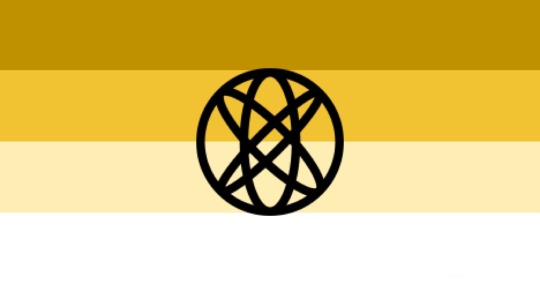
A xeno agab for those who were assigned deity at birth/ creation.
Assigned God at Birth • AGodAB • Assigned God at Creation ✧ ⋆.ೃ࿔*:・

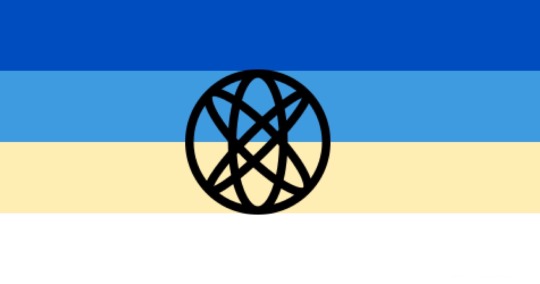
A xeno agab for those who were assigned god at birth/ creation.
Assigned Goddess at Birth • AGdsAB • Assigned Goddess at Creation ✧ ⋆.ೃ࿔*:・

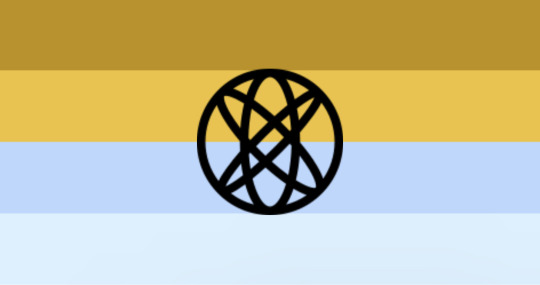
A xeno agab for those who were assigned goddess at birth/ creation.

#i have mastered the art of tearing convention apart ✨#mogai#liom#mogai coining#liom coining#mogai flag#liom flag#mogai orientation#liom orientation#mogai label#liom label#mogai safe#liom safe#neo agab#xeno agab#assigned deity at birth#assigned god at birth#assigned goddess at birth#adeiab#agodab#agdsab#assigned deity at creation#assigned god at creation#assigned goddess at creation
135 notes
·
View notes
Text


Assigned Deity at Birth • ADeiAB • Assigned Deity at Creation
A xeno agab for those who were assigned deity at birth / creation. [1]
#Assigned Deity at Birth#ADeiAB#Assigned Deity at Creation#ADeiAC#repost#reference book#sina's tag#mars' tag#luci's tag#vera's tag
1 note
·
View note
Text
when the worldbuildings so complex even 100 pages in you don’t know what’s going on
#shitpost#reading#the ruin of kings#I don’t know what’s happening :D!!#over 100 pages in and it might as well be page 5 for how well I understand this world#tf is a vané what is tenyé why’s the deal with quuros#how much magic is real what does it do#what’s a talis stone why is it important what is the shackle of stone#actually here’s a question what goddamn country are we in?#who is the main character#oh also what’s the deal with the deities? are you like assigned a goddess at birth??#how do you know which one you get?#WHAT was the deal with that portal they didn’t use#I’m so confused#what are the rules about slavery#who is enslaved#and what’s it’s connection to quuros?#what’s the black brotherhood what are. who
38 notes
·
View notes
Note
hiya! i was wondering if you have a post on how to create a god/deity for your story? thanks!
Writing Deities
What Type of God?
The form and characteristics of your deity characters will depend highly on the overall worldbuilding and mood of your story. Here are some common deity “types”:
Human-like gods who make their own share of mistakes, are tempted by desires (think of Greek/Roman Gods)
“God” as a formless, omnipotent force of the universe that directs people’s fates
An omnipotent God vs, Many gods in charge of one element or thing
Gods who command large spheres of elements (like sea, fire, war, etc.) vs. God of petty things (e.g. the God of morning coffee)
The appearance of a God will reflect what the people of that culture look up to. They can resemble an animal, have almost monster-like features or just look human more or less.
The Implications of Immortality
A god would generally be immortal, and this would be a major difference between your superheroes and a god. They cannot die and therefore are free from the fear of death, which is the most powerful motivator for our heroes.
This means that you’ll need to assign a flaw so that you can kick your deity characters’ butts. Often, this comes from the very fact that gods are immortal.
A tragic backstory of the god losing a human they cared about
A god who wants to die
A god who was kind and compassionate, but grew irritable and tired after seeing eons of human stupidity.
A god who regrets creating the world
Set up limits of their power. Gods cannot invade each other’s territory or they cannot bring back people from the dead. Or they aren’t allowed to roam in modern clothing, and your god happens to hate armor.
In essence, deity characters exist to question the reader’s belief about an aspect of life. Gods are often personifications of abstract concepts and through them you can convey a message about what you think is important.
For example, a Love Goddess may be a shriveled hag while her daughter, the Goddess of Passion, may be a standard beauty. This immediately conveys the message that a pleasing appearance is no substantial factor of true love.
A God’s “Personality”
The most important part of a god’s personality is going to be their attitude towards humans, since the purpose of a god is to command over and protect lives other than theirs.
How does the god feel about being assigned a “job” at birth? Or did they choose to be a god (any regrets)?
Generally, a god’s personality would be linked to the thing they command. The god of the sea may be capricious but surprisingly open-minded; the god of trees may be generous but stubborn, etc.
You can:
Summarize the god’s motto in a single sentence. It can be something philosophical or even comical, depending on the mood of your story. (e.g. “Love is cruel,” “Donuts are always right.”)
What kind of humans the god would like the most vs. hate the most
In general, are they compassionate/loving or sadistic/pessimistic?
─── ・ 。゚☆: *.☽ .* . ───
💎If you like my blog, buy me a coffee☕ and find me on instagram!
💎Before you ask, check out my masterpost part 1 and part 2
💎For early access to my content, become a Writing Wizard
#writing#writers and poets#creative writing#writers on tumblr#writeblr#poets and writers#helping writers#let's write#creative writers#resources for writers#writing process#writing community#writing inspiration#writing advice#writing ideas#writer#on writing#writing prompt#writer stuff#writers block#writerscommunity#writers community#writers life#write it#writers#references for writers#writing ask#writing a book#writing asks#writing about writing
187 notes
·
View notes
Text
Decoding Venus: A Journey Through the Nakshatras
Cancer rashi is considered the most feminine yet all the naks in Cancer rashi are ruled by masculine planets except Ashlesha ruled by Mercury which is a "eunuch" planet.
Similarly, Venus is the most feminine planet but Venusian nakshatras embody true masculinity.
Sexual polarity is imp because men are drawn to women who may outwardly seem feminine and charming but who embody strength and are emotionally masculine. The same way, women are drawn to men who seem outwardly masculine but who are in tune with femininity inwardly; this is what manifests as gentleness, kindness, appreciation for the fine things etc
The opposite of Cancer/4h is Capricorn/10h, 3 nakshatras fall into Capricorn rashi, Uttarshada, Shravana & Dhanishta. But I'll explain their masculinity later.
Now here are some things to consider,
*all Venusian naks are Ugra nakshatras (known for being fierce and cruel)
*all Venusian naks are Manushya gana
*all Venusian naks belong to a fire sign rashi
*all Venusian naks are assigned the cosmic purpose of 'preservation' (in Hinduism, the 3 cosmic functions, creation/preservation/destruction are personified as the Trimurti and different naks are assigned different functions)
The first Venus nak is Bharani and it is the second nak overall. It is important to understand that the Venusian journey begins in Bharani.
Bharani's deity is Lord Yama, the God of Death. He delivers justice and embodies Kala or time. Bharani is symbolised by the Yoni (which means "vulva" in sanskrit) and the word Bharani itself means "to bear".
Birth and death may seem like polar opposites but there is an element of each in the other. To be born is to experience the death of passivity. To die is to experience the birth of the spirit in another form. Lord Yama is associated with divine punishment and dharma but it would be more accurate to say that Lord Yama metes out the treatment that is the result of our own actions. He rules over time, hence what we do in the present is what we will taste in the future as its consequences.
"Time takes the ugliness and horror out of death and turns it into beauty"- Dodie Smith (Bharani Sun)
In French, orgasm is referred to as "La petite mort" which translates to "little death" and it connotes the "brief loss or weakening of the consciousness". Sex and death have had close associations in many cultures.
Hanya Yanagihara's novel 'A Little Life' has the following book cover:

its a photograph by Peter Hujar and is called 'Orgasmic Man'. The author insisted on using this image for the novel's cover because of how its difficult to tell whether the man is in pain or pleasure. This ambiguity is a major theme in the book as well, that deals heavily with sex, trauma, abuse, addiction etc
Hanya Yanagihara has Bharani Moon with Purvaphalguni Mercury & Saturn
The book, you could say explores the dark side of Venus in some capacity. one reviewer described it as "There may never have been a cover that better captures the emotional heart of a story — that is to say the agony and the ecstasy of desire."
"It poses this question: How does one navigate desire when all pleasure to be discovered in the sexual act has been forever stripped away and turned into the stuff of nightmares, and yet the deep longing for love remains?" the conflict between lust and love is a theme that's explored in the works of many Venusian natives.
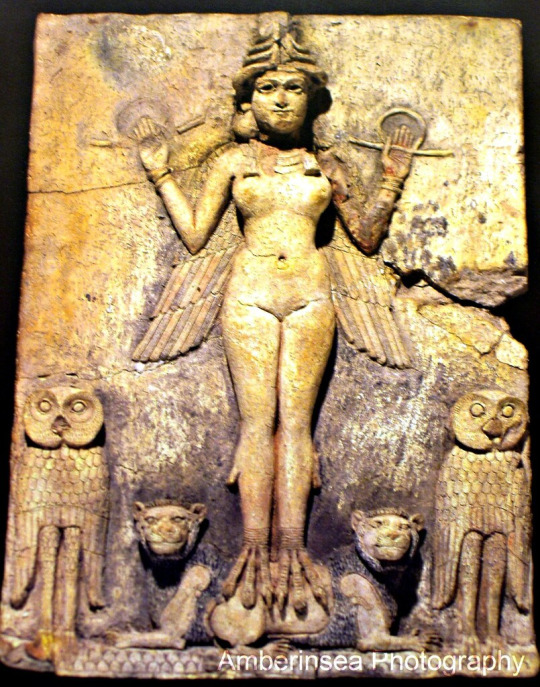
Ishtar is a Mesopotamian Goddess of love, fertility and war. Like many ancient deities, she was a dualistic deity, associated with life and death, making love and war as well as thunderstorms and food preservation. Ishtar was closely associated with Venus.
Ishtar, though responsible for all life is never considered a Mother goddess. She bore arms as the Goddess of War. She is a paradoxical Goddess figure with many contradictions; sex and violence, fecundity and death, beauty and terror, centrality and marginality, order and chaos. She occupies a liminal space and her influence spans every area of society, she governs all of civilization (think: the preservation aspect of all Venus nakshatras). She was even worshipped as the Goddess of transition between life and death due to her ability to come back from the underworld after she died.
She was widely worshipped in Mesopotamian society as an administrator of justice (see the parallels between Lord Yama and Goddess Ishtar?)
All of this gives us an idea about the highly complex nature of Venus. it amuses me when people think that Venus is some soft uwu nakshatra with bright colored aesthetics and cute lighting when the actual Venusian themes are of violence and war💀💀💀Venusian naks are hardcore af, let me just say that.
“Love is a smoke made with the fume of sighs; Being purg'd, a fire sparkling in lovers' eyes; Being vex'd, a sea nourish'd with lovers' tears; What is it else? A madness most discreet, A choking gall, and a preserving sweet.” ― William Shakespeare (Bharani Sun)
Bharani is closely associated with birth and procreation, however its cosmic function is "preservation" and not creation. This is because with other naks assigned the cosmic function of creation (ex: Ashwini & Punarvasu) creation must manifest from nothing. It manifests itself on its own; you are the creator and the creation. It is a spiritual and metaphysical concept, so to speak.
But Bharani is not associated with that sort of cosmic creation where the universe manifests itself from nothing, instead its connected to the most primitive and primal of human acts; copulation and procreation. Its directly associated with sex and reproduction. And this is not something that can happen on its own. by nature, procreation necessitates the union of man and woman. its not a symbolic act or a metaphor, it requires two people to get down and dirty. Creation of this sort is necessary to "maintain" or "preserve" our species; it does not arise out of nothing; certain prerequisite conditions have to be met in order for it to take place. this is why Bharani's purpose is "preservation".
from the minute that one is born, we are all on a journey towards death. Lord Yama embodies time because the actions we perform in the present can only be revealed in their true nature with time, i.e, whatever we sow, we reap but this is something that takes time. everything in life can be said to come down to timing. be it lessons learnt or success achieved.
its important to keep in mind that Bharani's aim is Artha
There are 4 aims, namely and each nakshatra has a specific aim assigned to it.
Dharma: doing what you are supposed to do. Fulfilling your soul in daily activities Artha: generating income and wealth so you can provide shelter and food for your body. Kama: going after your desires. Moksha: liberating your soul.
Venus itself is a planet associated with wealth, luxury, abundance, beauty etc
The first Venusian nakshatra is associated with the material aspect of Venus which is creating income and thereby attaining security. If we look at Maslow's hierarchy of needs and correspond it to the 4 aims, we can say that Artha is at the foundational base and Moksha is at the very top with Kama & Dharma located in between the two.
It is very telling that while Venusian nakshatras are split among Artha, Kama & Moksha aims, there is no nakshatra assigned the aim of Dharma, which is doing one's duty. With Venus there is no duty, no obligation, no decree; whatever one does we do out of love, this is the essence of Venus energy.
Therefore Bharani concerns itself with the most basic of needs, which is creating security for itself. It occupies the sign of Aries, ruled by Mars and we can say Mars represents the 'soldier'; it is raw, primitive and only concerned with survival.
As we progress through the other Venus nakshatras, we see how the aims ascend on the hierarchy, finally reaching its peak with "Moksha" or liberation in the final Venusian nakshatra.
Bharani is concerned with the most raw, primal and primitive of acts and located in the very first fire sign of Aries, it is an outcaste nakshatra and is the ONLY venusian nakshatra that is outcaste which is in itself unusual because Venus is concerned with refinement, grace, elan and elegance but the fact that the Venusian journey begins in a nakshatra that is outcaste with the aim of Artha implies one deep cosmic truth; in order for an individual to truly embody Venus and understand the planet's energies, you must first begin at the very bottom and ascend to the top. in Bharani, represented by the womb, we see the aspect of a human being taking physical form and being born, they are not born to riches or pleasures but in the most dire of circumstances, and they must now create security for themselves before they can even think of pursuing pleasures of any kind.
All Venusian nakshatras perform the cosmic function of "preservation" or "maintenance".
this is because they are all Manushya gana nakshatras, and human nature is one that's primarily best suited for this cosmic function over the functions of Creation or Dissolution (for deva gana and rakshasa gana naks).
Creation itself is the feminine principle but "preservation" is inherently masculine. Destruction or dissolution is a different expression of the same feminine principle.
All Venusian nakshatras are also of Pitta (fire) nadi
In Ayurveda, people with pitta are said to usually have a muscular build, be very athletic, and serve as strong leaders. They're highly motivated, goal-oriented, and competitive. They are said to possess an aggressive and tenacious nature.
The second Venusian nakshatra is Purvaphalguni, presided by the deity Bhaga, God of Marital Bliss. Purvaphalguni is symbolised by the front legs of the bed or a swinging hammock, indicating relaxation and comfort.
while Bharani was concerned with birth and death, in Purvaphalguni the association is with the sexual act itself.
Purvaphalguni's aim is Kama (desire) and this nakshatra is associated with love, romance, wealth, luxury etc.
Bharani's yoni animal was the elephant, a large yoni animal signifies the immense sexual appetite of the native but also the capacity for a certain breadth of experiences👀 with Purvaphalguni, the yoni animal is a rat, which is widely considered to be the most sexual animal as it copulates and reproduces at an immense pace. It makes sense as to why Purvaphalguni is about sexual pleasures and bliss and not about the how or the why; its purely concerned with the process. These natives are freaky af and the most openly and unabashedly sexual of all.
“Beauty is desired in order that it may be befouled; not for its own sake, but for the joy brought by the certainty of profaning it.” ― Georges Bataille (Purvaphalguni Sun)
Purvaphalguni men love the idea of corrupting something that is innocent and pure and making it filthy.many of them perhaps have a virginity kink 👀💀
In addition to this, Purvaphalguni men and Venusian men in general tend to exhibit the "Madonna-Whore Complex"

Jesse James (Purvaphalguni Sun, Bharani Mars) was married to Sandra Bullock and was outed as a serial cheater.

Tiger Woods (Purvashada Sun, Ketu in Bharani) was exposed as a chronic cheater (he slept with over 120 women during the course of his marriage) and spent time in rehab for his sex addiction.
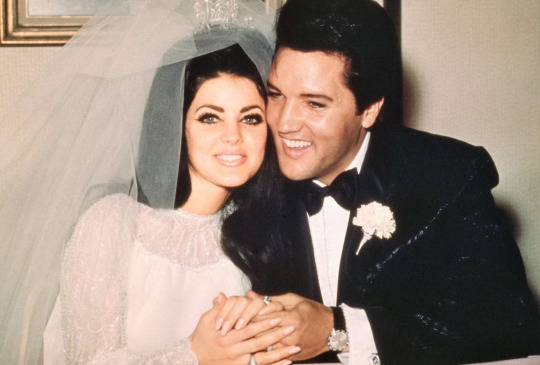
Elvis Presley (Purvashada Sun) met his wife Priscilla Presley when she was 14 and he was 24. He was hell-bent on "preserving her purity" and they had a very "chaste relationship" after she was married and had a baby however he did not want to have sex with her anymore because she was a mother.

In the 2002 movie Spider, Ralph Fiennes played a man who struggled with the Madonna-Whore complex. He has Mercury in Purvashada as his amatyakaraka.
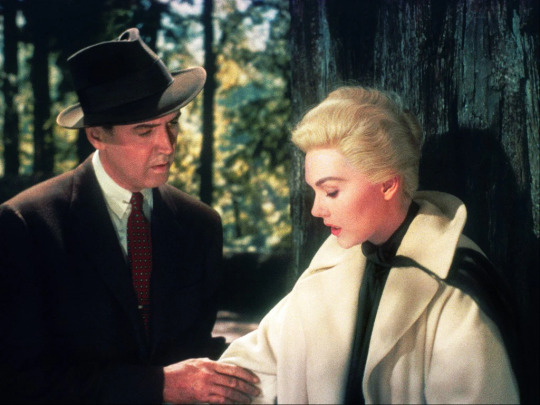
the movie Vertigo (1958) has this complex forming a major plotline. it stars James Stewart (Ketu in Purvashada) and Kim Novak (Mars in Purvaphalguni atmakaraka and Ketu in Purvaphalguni) as the lead actors.
The novel Portrait of the Artist As a Young Man features a protagonist who suffers from this complex and its the primary plot of the novel as well. Its written by James Joyce who is Purvashada Rising.
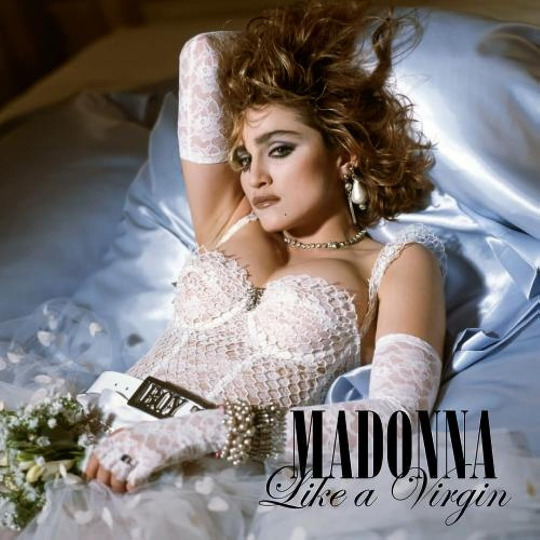
Madonna (Purvaphalguni Moon) often toyed around with the Madonna-Whore complex early on in her career and even has a song called Like A Virgin, the lyrics go like this:
"Like a virgin Touched for the very first time Like a virgin When your heart beats next to mine
Gonna give you all my love, boy My fear is fading fast Been saving it all for you 'cause only love can last You're so fine and you're mine Make me strong, yeah you make me bold, oh, your love thawed out Yeah, your love thawed out what was scared and cold."
Since Purvaphalguni is symbolised by the marital bed, and the consummation of the marriage was always associated with "losing innocence and virginity" and how sexual experience is linked with "knowing" and maturing from child to adult.

Black Swan, starring Natalie Portman (Purvaphalguni Moon) and Mila Kunis (Purvaphalguni Mercury & Venus) is a sexually charged movie that explores this dichotomy very well. Nina is a good little girl whereas Lily is highly sexual and wild.
A major theme of this movie is merging these two opposing forces. For good girl Nina to embrace her dark, wild "Black Swan" side. (spoiler alert!!) obviously in this movie, Lily's character is said to be an extension of Nina and not a real person which drives home this point even further.
Losing innocence and corruption/being corrupted are major themes in Purvaphalguni nakshatra and this is not just sexual. An ordinary person losing all sense of morality and submitting to utter debauchery and depravation is a common trope found in the works of many Purvaphalguni natives.

Take the movie, Taxi Driver, for example, it was written by Paul Schrader who has Bharani Moon, Purvaphalguni Venus & Mars
This movie revolves around Travis (the titular Taxi Driver) who is experiencing an extreme existential crisis and is deeply troubled by the prostitution he witnesses around the city; he is unsettled by the moral bankruptness and urban decay around him. He sets out to rescue a child prostitute and the movie has major elements of sex and violence.
This movie is a good example of Bharani's restrained Venusian expression meeting with Purvaphalguni's excess.
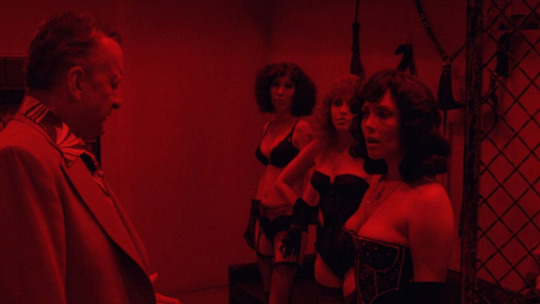
Hardcore (1979) directed by Paul Schrader (honestly all of the movies he's written and directed are LOADED with Venusian tropes, themes and motifs) is about a father who goes looking for his daughter who went on a church trip to Cali and ended up working as a porn star.
Like I've mentioned before, the dichotomy between innocence and corruption, divine and human, Madonna and Whore are core themes in the works of these natives. Like Taxi Driver, the protagonist has to descend into hell in order to save the person who is lost. The contrast between "polite society" or the prim & proper "morally upright" side of society versus the depraved, sleazy, immoral underworld is depicted in a very stark and raw manner.
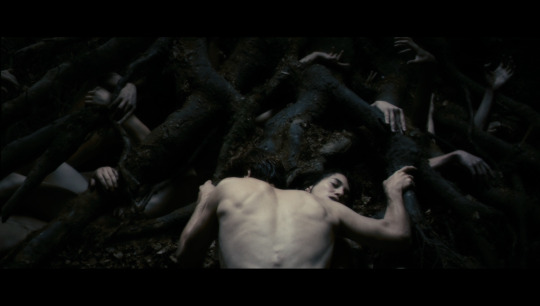
Antichrist (2009) directed by Lars Von Trier (Bharani Sun, Purvashada Moon) and starring Willem Dafoe (Purvaphalguni Moon, Purvashada Rising) is another movie that explores Venus at its most chaotic, unrefined and truthful. Its about a grieving couple who lost their son and go to a cabin in the woods to cope but of course, crazy shit starts happening and is rife with sadomasochistic elements.
Purvaphalguni is the height of Venus, located in the sign of Leo which is ruled by the Sun; here a native loses all sense of ego or pride and gives in completely to their pleasures and desires. Its a very hedonistic nakshatra. Given that its aim is Kama and is a Manushya gana nakshatra, it points to how a native is willing to do anything to attain what he desires; there is no sense of "right" or "wrong" here because Venus is a planet of indulgence.
In Bharani, presided by Lord Yama, the themes were strongly tied to karma, justice, time etc but this is the initiatory stage of Venus, where Venus acts with restraint. In Purvaphalguni, Venus is at its most expansive and wild. Bharani's yoni animal is an elephant; are elephants known for being very sexual? no. they are known for how they protect their herd and how nurturing they are of their young ones. Compare this to the rat (Purvphalguni's yoni animal). Rats have millions of kids and don't stick around to care for them particularly. Since they procreate at such a fast pace, it's every rat for himself. they are associated with filth and dirt.
Its very common for Purvaphalguni men to be involved in sadomasochistic sexual activities; in fact, two of the most famous writers to address these themes, Georges Bataille and Marquis de Sade both have Purvaphalguni Sun & Moon respectively.
“Life has always taken place in a tumult without apparent cohesion, but it only finds its grandeur and its reality in ecstasy and in ecstatic love.”― Georges Bataille (Purvaphalguni Sun)
"Lust is to the other passions what the nervous fluid is to life; it supports them all, lends strength to them all ambition, cruelty, avarice, revenge, are all founded on lust.”― Marquis de Sade(Purvaphalguni Moon with Ketu in Purvashada)
As such, many Purvaphalguni men have been involved in some type of sex scandal at least once in their career.
Nabokov who wrote Lolita had Purvaphalguni Moon and its a book about a old man who falls in love with a child. Like I said previously Purvaphalguni/Venusian men in general tend to have a virgin kink/a thing for innocence and corrupting someone and derive a sense of satisfaction from it.

in the 90s, Hugh Grant (Purvaphalguni Sun) was caught with a prostitute while he was in a long term relationship with Liz Hurley.

Freddie Mercury (Purvaphalguni Sun & Rising) was known for his wild and freaky love life, he openly spoke about his "enormous sex drive", he once celebrated his birthday with a 5 day orgy💀💀

Namjoon (Purvaphalguni Sun) received flak for recommending the book Almost Transparent Blue which featured graphic sexuality and violence including threesomes and rough sex. In his early career, he also received flak for his sexually suggestive songs like "Expensive Girl", "Trouble" and "Joke".
I don't want to go into this because I don't think there can be astrological evidence of someone being an abuser (i.e anyone could be any abuser regardless of their placements) but many Purvaphalguni men have had sexual harassment charges pressed against them.
“One must do violence to the object of one's desire; when it surrenders, the pleasure is greater.”― Marquis De Sade (Purvaphalguni Moon with Ketu in Purvashada)
This nak is the height of Venusian indulgence and as every peak is followed by a valley, Venus after ascending through the aims of Artha and Kama, now finds itself in the concluding Venus nakshatra of Purvashada. The aim of this nak is Moksha. When all else is satisfied, the only thing left to do is seek salvation.
Purvashada's yoni animal is a monkey and Purvashada belongs to the Brahmin caste. It is a Manushya gana nakshatra.
It is symbolised by “a fan/winnowing machine which separates grains from the husk”. It occupies the sign of Sagittarius and thus its sign lord is Jupiter.
The deity of Purvashada is 'Apah', Goddess of Water/Ocean.
In the final Venus nakshatra, the themes of refinement and purification are at their height. There is a relentless desire for expansion and the combined energies of Jupiter & Venus together can make a native simultaneously expansive but still constricted at the same time. Purification is a major theme in this nak. Bharani was concerned with birth and creation, Purvaphalguni with the sexual act in itself but in Purvashada, the Venusian focus shifts beyond either of the two.
Although Magha is most commonly associated with the "Goth" aesthetic, I would say even Purvashada natives have a tendency to lean towards a darker, macabre aesthetic.

Ozzy Osbourne (Purvashada Moon) was lead vocalist of the heavy metal band Black Sabbath and called himself "Prince of Darkness".
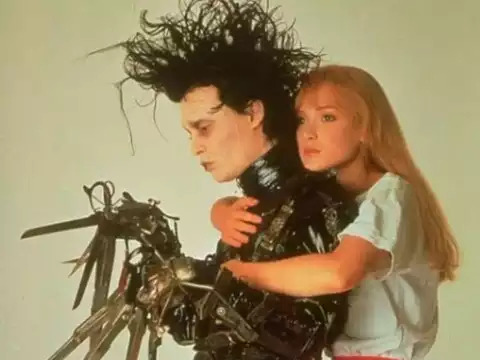
Johnny Depp (Purvashada Moon) stars as Edward Scissorhands in the movie of the same name. The movie revolves around an artificial humanoid creature who tries and fails to adjust to normal society despite the efforts of those around him. He falls in love with a woman he cannot be with. This is a common trope in the works of many Purvashada natives.
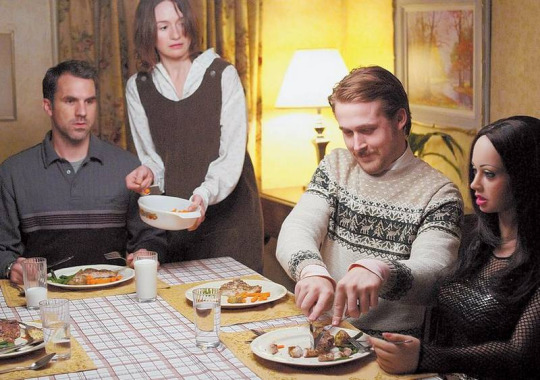
Lars & the Real Girl (2007) stars Ryan Gosling (Purvashada Moon) as a socially awkward man who begins to have a relationship with a lifelike doll believing her to be real. His family tries really hard to help him and ultimately (in a very Purvashada esque ending; because of Purvashada's connection to water) he believes that the doll is dying and mourns for her while submerged in water.

Charles Addams who created The Addams Family had Purvashada Sun (he was also Magha Moon), Morticia Addams was played by Carolyn Jones who was Bharani Sun & Moon, in the 90s adaptations she was played by Anjelica Huston who had Purvaphalguni Moon & Ketu

in the movie City of Angels starring Nicholas Cage (Purvashada Sun) the theme of a human and non-human being uniting is once again repeated, this time, Cage plays an angel who falls in love with a mortal woman. (spoiler alert!!) the movie ends with Cage choosing to be a mortal but his human lover passing away tragically. In true blue Purvashada fashion, the movie ends with Cage near the ocean, accepting his grief and new life as a mortal being.

in Francois Truffaut (Purvashada Rising) Jules et Jim, we see the tale of two men who both love the same woman, Catherine. The story repeats the same trope of how neither man gets to truly be with her (true union being impossible is a common Purvashada trope) and the movie ends with her driving Jim and herself into a river while Jules watches on. (death in the water or mourning someone in the water etc seems to be a common motif in the works of these natives)
“Love (understood as the desire of good for another) is in fact so unnatural a phenomenon that it can scarcely repeat itself; the soul being unable to become virgin again and not having energy enough to cast itself out again into the ocean of another soul.”― James Joyce (Purvashada Rising)
“The best people possess a feeling for beauty, the courage to take risks, the discipline to tell the truth, the capacity for sacrifice. Ironically, their virtues make them vulnerable; they are often wounded, sometimes destroyed.”― Ernest Hemingway (Purvashada Moon, Purvaphalguni Rising)
Hemingway's most famous work is titled The Old Man & the Sea and its set almost entirely on the water/the beach.

Christina Ricci who is best known for playing several dark edgy characters is a Purvashada Moon (she's also Magha rising)
I've also noticed that certain Purvashada natives have associations with Satanism 💀💀 or star in films that feature violent, gorey rituals etc

Rosemary's Baby stars Mia Farrow (Purvashada Moon) and Satanism is a major part of the movie's plot 💀

Zeena Schrek (Purvashada Moon) is the daughter of the founder of the Church of Satan and was the first baby to undergo a Satanic baptism. She's probably best known for conspiracy theories stating Taylor Swift is her clone lmao 💀😭

While Jennifer's Body's main story can be considered an Ashlesha themed one, there are significant allusions to the occult, virgin sacrifice and demonic possession which makes me believe it can be attributed to Megan Fox's Purvashada Rising
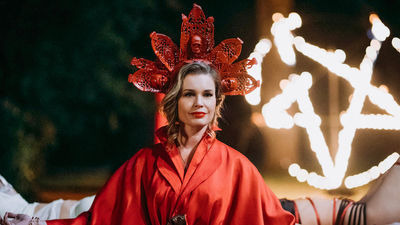
in the movie Satanic Panic (2019), Rebecca Romijin (Purvashada Rising) stars as the leader of a satanic cult.
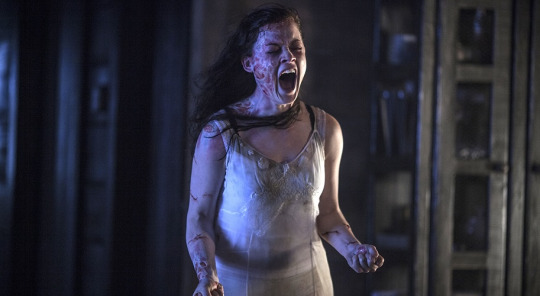
Jane Levy (Purvashada Sun) starred as the protagonist in the 2013 film Evil Dead that features a lot of demons and demonic possession.

Nina Dobrev (Purvashada Sun) is best known for playing Elena on the show The Vampire Diaries. while i know demons and vampires are not the same, you've got to admit they share a lot of similarities xD
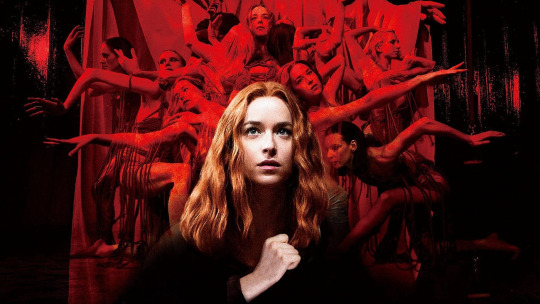
Dakota Johnson (Purvashada Rising) stars in Suspiria which is about a young woman who accidentally finds herself in a cult/witches' coven.
Some very well known people who could be called evil personified are also Purvashada natives, such as Hitler and Harvey Weinstein (Purvashada Moon)
Purvashada natives love to play the devil's advocate, the quality we most associate with a monkey (this nak's Yoni animal) is its playfulness. Purvashada natives do things simply for the heck of it/thrill of it. There is no sense of purpose or direction to which their Venusian qualities are directed. Thus it represents the dark side of Venus. When all other desires are fulfilled and the only thing left is to seek Moksha, the nakshatra tends to exhibit the Trickster archetype.

the 2002 movie May, stars Angela Bettis (Purvashada stellium; sun, mercury, jupiter and rahu) and depicts the cruel and sinister side of Venus very well (trigger warning; this movie is VERY gore-y), its about a woman who ritually murders several people who she did not feel loved by (to put it simply).
While Bharani being the initiatory Venus nak is Venus at its most ethical, all sense of "right and wrong" evaporates into thin air as the Venusian journey progresses. In Purvaphalguni, this manifests as a desire for sex itself but in Purvashada, the native is dissatisfied with mere bodily union, it seeks something bigger. This theme of union being impossible/not satisfying can be seen in the works of many Purvashada natives. The desire to delve into the occult arises out of a desire to transcend ordinariness, find something that addresses the darkness and uncover the truth within it.
The Venusian journey passes through the sign lords of Mars, Sun & Jupiter; beginning as a soldier, working out of a sense of duty, reaching its height in the individualistic Sun, seeking pleasure merely for one's own sake and finally concluding itself in the expansive Jupiter where things get unusual. Venus is a complicated planet full of contradictions and combining its energy with that of Jupiter which expands beyond control means the darkness of Venus makes itself seen in ways we don't quite see in the same way in the other naks.
The tattvas of these naks are earth, water and air respectively. It originates in a very grounded fashion, full of practical concerns, then dissolves itself entirely in the formless water before becoming the element that's hardest to narrow down; air.
Bharani with Aries, Purvaphalguni with Leo and Purvashada with Sagittarius and all these signs are traditionally perceived as masculine and the Fire element in general is understood as masculine. The opposite of fire is water, which is feminine (water being related to the Moon, which is a yin planet) whereas fire is related to the Sun which is a yang planet.
it is the combination of masculine with feminine that heightens the effect of the other. a highly masculine man or a highly feminine woman have integrated the opposite energy within them fully; they are internally almost androgynous . they dont lack the influence of the other
in Bharani, we have the womb and creation, in Purvaphalguni we have the bed, in Purvashada, we have the winnowing basket, separating the husk from the grain, depicting the different functions of Venus; as source, hedon, and order.
#sidereal astrology#astrology notes#vedic astro notes#vedic astrology#nakshatras#astrology#astrology observations#astroblr#astro notes#astro observations#venus#bharani#purvaphalguni#purvashada
387 notes
·
View notes
Text

The Cosmic Egg
The Cosmic Egg is one of the most prominent symbols in comparative mythology, existing in numerous creation myths across different cultural traditions. While not mentioned in Hesiod’s Theogony, the egg is a distinct feature in the cosmogony of the Orphic tradition of Ancient Greece. The Orphic Egg, named after Orpheus, the mythical poet and founder of the Orphic Mysteries, was believed to be the first spark from which the universe was created.
“The egg is a germ of life with a lofty symbolical significance. It is not just a cosmogonic symbol — it is also a “philosophical one”. As the former it is the Orphic Egg, the world’s beginning; as the latter, the philosophical egg of the medieval natural philosophers, the vessel from which, at the end of the opus alchymicum, the homunculus emerges… the spiritual, inner, and complete man.” - C. G. Jung, Archetypes of the Collective Unconscious
According to Orphism, in the beginning there was only darkness, and nothing existed except for two winged serpents, Chronos (the personification of time) and Ananke (the personification of inevitability and necessity), who together produced the Cosmic Egg. One of the serpents then wrapped around the egg until it hatched the brightly lit, golden-winged hermaphroditic deity Phanes, also called Protogonus which translates to ‘first-born’. Phanes created heaven from the top half of the shell and earth from the bottom half, assigning to the world the placement of the sun, moon and stars, and producing from himself all other Gods. He is representative of the Sun, “[bringing] light into the darkness and order out of chaos.” (Joscelyn, The Orphic Mysteries, p.25)
“The ancient symbol of the Orphic Mysteries was the serpent-entwined egg, which signified Cosmos as encircled by the fiery Creative Spirit. The egg also represents the soul of the philosopher; the serpent, the Mysteries. At the time of initiation, the shell is broke and man emerges from the embryonic state of physical existence wherein he had remained through the fetal period of philosophic regeneration.” - Manly P. Hall
Jung, who studied and wrote about Orphism in his work Transformation and Symbols of the Libido would later come to incorporate this learning into his own ritualistic effort to revive the Orphic God Phanes, bringing into secular consciousness a renewed God image. Through his exploration of the human ego’s confrontation with scientific modernity, as detailed in the Red Book, Jung comes to view Phanes the light of a new consciousness and resplendent source of spiritual energy.
68 notes
·
View notes
Text

@slaughterboyf themed NPT!

Names: Alice. Wonder. Angelique. Echo. Mirror. Milo. Lovina. Joy. Dollie. Valentine. Soda. Tap. Berry. Fawn. Kewpie. Vanilla. Sweetheart. Gabriel. Wishy.

Pronouns: He/Him. H♡/H♡m. Chu/Chus. He/Hearts. Doe/Does. Pup/Pups. Rot/Rots. Sin/Sins. Doll/Dolls. Vamp/Vamps. Dei/Deities. Crave/Craves. Love/Loves. Sick/Sicks. Loverboy/Loverboys. Date/Dates. Ange/Angels.

Usernames: balljointedsweetie. nurseloser. angeldarling. sweetcherubbaby. deityboy. loveysick. infectedwithangelics. theboyfieofall. exholylove.

Titles: The Boyfie. [prn] who is a Darling. [prn] the Boy Bride. The False Prophet. The Darling Nurse. [prn] the Silliest Little Clown. The Clown who was Crowned.

Genders: Filthangelic. Angedien. Canniloveangelic. Angelsoftware. Canifepinkic. Amoralic. Pinkpatient. Nupinkre. Pinkdoctor. Genderdate. Dolldate.

Labels: Angel Lesboy. Angelibian. Peach Bisexual/Pink Bisexual. Cannibal Lesboy. Assigned Doll At Birth. Lovecore Transsexual. Doll Lover Lesbian. Seeby Sweetheart's Achillean. Pinkboy.

I hope this is okay!
#traumagenic system#mogai coining#mogai#coining#did system#seraphim-coinz#coining post#anti endo#endos dni#npt#id pack#npt list#npt ideas#npt pack#npt suggestions#pronoun suggestions#snput#npt packs#id packs#name suggestions#name ideas#sys names#nput#pronoun ideas#neopronouns#gender suggestions#🧃✮⋆˙seraphim-coinz。𖦹 ⋆🍓#🧃✮⋆˙seraphim-coinz-frens。𖦹 ⋆🍉#🧃✮⋆˙seraphim-coinz-npts。𖦹 ⋆🍋#moth don't look
126 notes
·
View notes
Text
Okay, insane worldbuilding baby god c!Dream time now that I'm doing a bit less dying. You were warned about the worldbuilding.
To start this off, I have to introduce the nonsense deity system that this universe has running in the background.
Humans exist, hybrids exist, gods exist. Gods are not quite immortal, but they're close to it. Gods are separated out into different factions or "titles", there's quite a few factions with different corresponding hybrid groups. Some titles must be held by a hybrid from a certain group, some titles can be held by anyone from anywhere. More than one god can exist for a single title, and the inter-faction relationships vary.
Ex, there can be 2 death gods, and how they work together will be different depending on their personalities. Each god will have a specific role usually assigned at their ascension.
For a very long time, gods existed in a natural cycle. They would be born when a hybrid or human was chosen by the universe to be a prospective god (nicknamed "baby gods" or "godlings"), they would be marked from birth, but gods are generally unable to pick out godlings until they start to grow up, usually between 6-10. A baby god will be compelled to undergo a set of trials depending on their prospective title.
A baby god failing could have a range of consequences, from death to simply losing the prospective godhood. It mostly depends on the requirements of the trial. The trials have been set in place by a force that existed prior to the gods, and they have no control over it.
There will only ever be one baby god at a time. The universe picks one for the current title, that one is given the ability to attempt the trials. Upon success, the universe moves to the next title. Upon failure, there's often a waiting period of 50-100 years before the universe picks again for another prospective of the same title. The universe will not move on until a new god has joined the ranks of the current title.
When a baby god succeeds, they ascend to godhood. They're gifted a new name offering them a specific role under their title. Most gods also keep their human names in some capacity, although those are reserved for a chosen few. Some ditch their human names. Some pick new names. Some tell other gods their role, others do not.
Ex: Kristen (Human Name), God of death (title), Soul guide (Role)
Another example would be XD, (human name unknown), God of the End (title), Claims his role was given as "XD", lying.
Gods obviously have a lot at stake for helping out the best of their own titles, so they have agreements in place and rules about what sort of help can and can't be given to godlings. Unlike human agreements, gods are bound by their word (with one exception), so these rules maintained a fair process for a very long time. Right up until they didn't.
See, I mentioned before that gods are mostly immortal. There are exactly two things that can kill a god. Expulsion or an End God.
Expulsion is a process that requires all other gods to agree that the chosen god needs to die, that not doing so would threaten the universe itself. If there is an agreement from all other gods, then the god in question is stripped of their godhood and killed. While modern gods aren't entirely sure why this works, the best evidence suggests it is due to a very old pact made at the start of the universe that almost all gods are bound by.
The other exception are End Gods, also known among gods as "The Unbound". They possess a simple yet devastating ability that no other god has. They can lie.
It's generally assumed that this ability is why End Gods retained the ability to kill other gods. Either that or they were given the ability to lie in order to retain that ability. It's unclear which came first, or if it even matters.
Because End Gods can lie, they remained unbound by the pact of the other gods, and can kill as they like.
In fact, not only CAN End gods kill, but their trial requires them to do so. In order for a godling to complete their trial, they must slay two fully fledged gods.
This complicates the End gods relationship to other gods. On some level, End gods are much needed. While gods of various titles don't die naturally, they do age in a way, and they can lose themselves to madness. The older a god is, the more likely they are to lose themselves. It can be extremely difficult to gather and convince every single other god that one god is beyond saving and has to be stripped of godhood.
Still, other gods regard End Gods with a level of fear. It's only natural to fear something that can kill you. Beyond that, trusting an End God is always a gamble. Any promise made to them must be fulfilled, while they aren't bound in return.
Despite this or perhaps because of this, End Gods still generally maintained good relationships with other gods. They usually honored their word unless they had been slighted, and killings were generally well justified.
End Gods create a natural cull, and they also act as balance keepers. They tend not to bother with humans much if at all, and instead focus primarily on other gods. As such, they remain relatively unknown or misunderstood by humans. On the flip side, other gods often sought them out as peacekeepers or to provide an unbiased opinion since End Gods stood apart from other titles that were often tied up in promises, obligations, loyalties and favors. They had their role and they played it well.
The birth of a new End God was considered both the end of the prior cycle and the beginning of a new one. It takes quite a long time for new gods to be born when considering a human time scale, so gods started tracking the birth of end gods to mark passages of time for them.
Or they did.
See, the problem was that XD was born.
That wasn't the only problem, there were a lot of problems, but the tipping point was XD.
XD was one of two gods of the end. He had killed one of the prior End Gods to obtain his godhood, the younger of the two, and he took up his mantle with pride. XD was a bit of an oddball among end gods though. Not that that shouldn't have been expected.
End Gods tended not to interact with each other much. One liar was enough, and many saw it as their duty to maintain distance. When End Gods did interact, it was generally in conflict. They were considered unbound after all, and it wouldn't do to break that status.
XD didn't believe in that. He was taken with the other End God and persistently followed them around until his efforts were rewarded with a reluctant friendship. The other god was much much older, and to some degree they were worried about leaving such a young End God to their own devices. They saw their own end coming, and didn't forsee the damage this would cause.
Things were good, for a time. Some of the other gods were unnerved, but others saw it as necessary. After all, XD managing to kill an End God in their prime had also been concern. Signs were there for the eldest End God being on their way out, and having a trained replacement was better.
Because of the danger they pose if they lose themselves to madness, End Gods chose their own deaths. Some claim that the universe told them it was time, others simply said they were done putting up with the other gods. But each End God would know when it was their time, and they would pick how they wanted to go. None ever seemed sad, they were unbound to the world after all.
But XD... XD changed that for his elder. Maybe it was a mistake. Maybe it was purposefully ignoring the signs. But the closer XD grew to the Elder death god, the less they found themselves willing to leave.
The madness set in quickly, and XD did the one thing an End God should never do. He hesitated. He couldn't bring himself to kill his elder. He let himself be bound.
When a vote was called to revoke the elder's godhood, XD had to agree. And again, he hesitated. That hesitation proved to be a grave error.
For the gods, it was a blink of an eye before nearly half of them were wiped out in the mad rage of the elder End God. No title was left unscathed, although thankfully no title was left empty.
XD acted the moment he found himself again, he took the other End God's life and put an end to the carnage. Not before irreversible damage was done, and XD was now left alone.
The incident scared the other titles deeply. It proved just what could happen if End Gods were let unchecked. Many blamed XD, others blamed the fact that two End Gods had been allowed to exist at the same time.
After a heated discussion, an agreement was made between the other gods that this could never be allowed to happen again. End Gods needed to be kept under firm rule.
XD would be allowed to live (if only because not having at least one god for each title could cause major destabilization) but no new End God could be born until his time was up. If XD refused to comply, he would be killed. If he attempted to kill another god, he would also be killed.
There was a newfound fear of death in the gods, and they would not allow themselves to be slaughtered again.
Some even saw this as a method of obtaining true immortality. Of breaking beyond their former limits. They saw a chance for power.
The current cycle continued until it reached it's end, where a new End God should've been allowed to have been born. Tension had been building for what all the gods knew would come next.
End Gods had specific requirements. They had to be born from Ender Dragon hybrids, a race that was generally reclusive and isolated.
The gods merely... increased their isolation. Separating Ender Dragon hybrids from the rest of the universe until they became a myth.
Every time a new End Godling was born and began to show signs, the child was killed before they could truly begin their journey or pose a real threat to the gods. It was cowardly. Pathetic.
And so a new status quo was born.
XD watched as child after child was slaughtered, never given a chance to put up a fair fight. At first he considered it his punishment for hesitating, but over time he watched as the other gods grew... complacent.
He overheard discussions that maybe there should never be another End God. That they should just be rid of them. That the gods shouldn't have to live in fear. They should be above it.
Even as he overheard this, he saw some of the older gods begin their decent into madness. His own ability to act halted by the fear that if he did, if he killed, then he would be killed in turn and no end Godling would be allowed to take his place.
XD watched this go on for a very, very long time. He watched so many children get killed that he couldn't remember all of their names anymore. It broke something in him. He stopped speaking to the other gods. He withdrew.
Finally, he decided he'd had enough. He entered the human world and worked tirelessly to create something new. Something that broke the rules the universe had laid out. Something only an End God could create.
At the end of his work, he had a simple white mask and a plan.
The mask was the cruelest thing he'd ever created, and it was also the only way out. If it worked as he intended, it would hide a godling from the universe itself. Separating the godling from their budding powers and letting them grow strong enough to complete their mission.
It would hide what they were almost entirely, and if XD kept them close to him, any little trickles of godly power that came out could be disguised as his own.
He stalked the remaining colony of ender dragon hybrids for years until finally he found the next godling.
They were only 4, and they had been born very early. It had only been 40 years since the last one.
XD took it as a sign from the universe that he was in the right. The other gods wouldn't really begin their search until it hit 50 years, and they wouldn't really worry until nearly 100 had passed. More than enough time for this little one to grow up and claim their place.
Under the cover of night, he stole the little one away. He pressed the mask onto their face, and took them to a server near where other humans and hybrids were. The child would need to blend in with them eventually.
Although the child protested at first, they eventually understood that XD had taken them for their own safety. That it had to be done. In time, the child began to forget where they came from.
As a part of the process, XD found himself tasked with renaming the little one.
In the end, he chose to share part of his own name. One that he hadn't shared with anyone else. When he'd taken up his own godhood, he'd been given the role of "Dreamer". It was a role he still didn't understand. But maybe his future companion would?
Dream loved his new name, and XD loved him in turn.
Now he just needed to make sure that he kept Dream alive.
How hard could that be?
Anyways the next part of the godling c!Dream AU is just "XD, a god who never talks to humans now has to try to keep a human child alive and also Badboyhalo believes he may be co-parenting with the moon". So stay tuned for that.
#dreblr#dreamxd#c!dream#ender dragon dream#godling dream au#dreamwastaken#dream smp#dsmp#mcyt#Dreamwastaken#Dream smp#godling c!dream au#sif speaks#my headcanons
203 notes
·
View notes
Text
NAKSHATRAS AS GODDESSES
4/27
🌸ROHINI🍭
DISCLAIMER: This is based solely on my research and the patterns that I saw. I can't promise that I'm gonna be sure in all the coorelations, but I'm going to attribute each nakshatra a goddess that I think fits it the closest. If you're dissapointed, to make up for it, I'm going to list some other deities in the end that I think also fit the nakshatra. Don't come for me if you think I'm wrong, be respectful in the comments if you think so and have fun 🤍
This one was easy and also not easy? It seems too easy, too easy to be true, like the mythology of the nakshatra itself...
Lakshmi
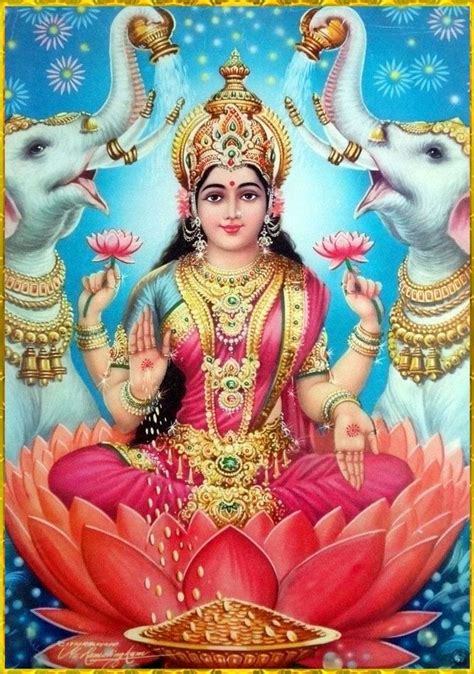
Pantheon: Hindu
Name meaning: a lucky omen, the goal.
Associations: wealth, beauty, love, abundance, fortune, power, fertility and prosperity.
Symbols: Lotus flower, elephant, owl, gold coins.
Lakshmi, according to Hindu mythology, was born from the churning of the ocean of milk, an event that was caused by the war between the Demons and the Gods. She was born fully grown, on a lotus, with a smiling, radiant face. She rides an owl and is often depicted by two elephants showering her. Elephants are a symbol of strength, luck and proserity. Owl (the symbol of the opposite nakshatra- jyeshta) is often seen with Lakshmi as a kind of guardian, always watching over her.
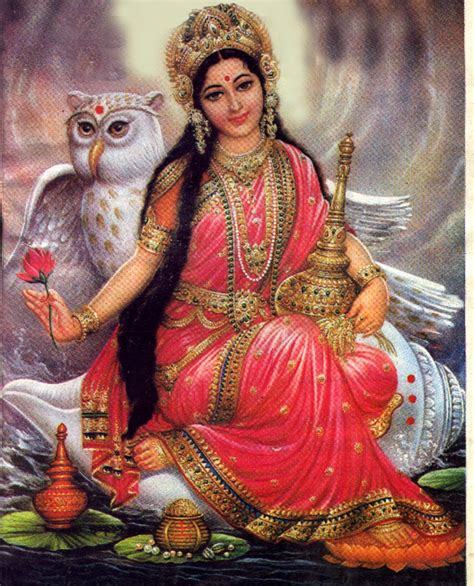
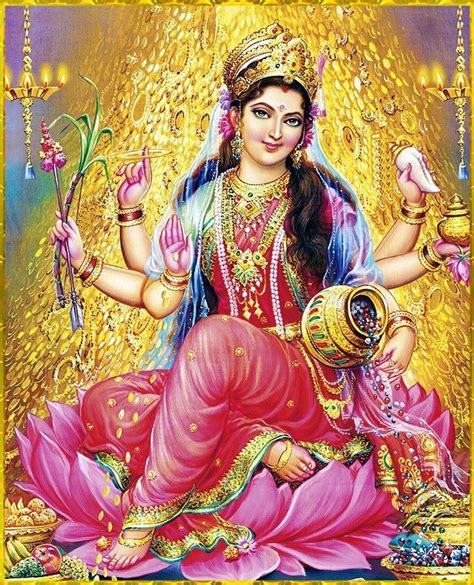
Rohini is the nakshatra of quick and rapid growth, its real life natives often being physically mature but internally childlike, often more dependant and submissive. This is the trait that makes this nakshatra the favourite of the moon, the planet moon is also literally exalted here, as well as Rahu.
One of the symbols of Rohini nakshatra is a chariot. It's a preserved tradition that brides ride in a chariot on the day of marriage. Lakshmi is often depicted seating on a chariot. Chariot/cart is also the symbol of the Taurus, the sign in which Rohini is located.
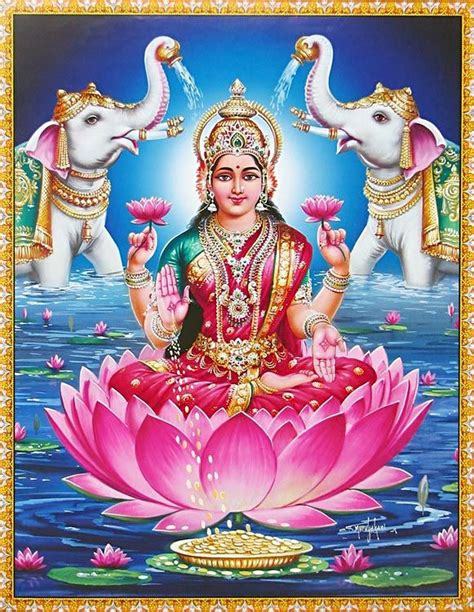
Some sources say that Lakshmi is associated with the moistness nessecary for growth (rohini's power).
You might have noticed that in most depictions she has four hands. They are said to represent the four aims of life: Dharma (righeousness), Artha (gathering necessary material recources), Kama (going after desires) and Moksha (liberation through knowledge). Her name literally means "aim" or "goal", so that definitely makes sense.
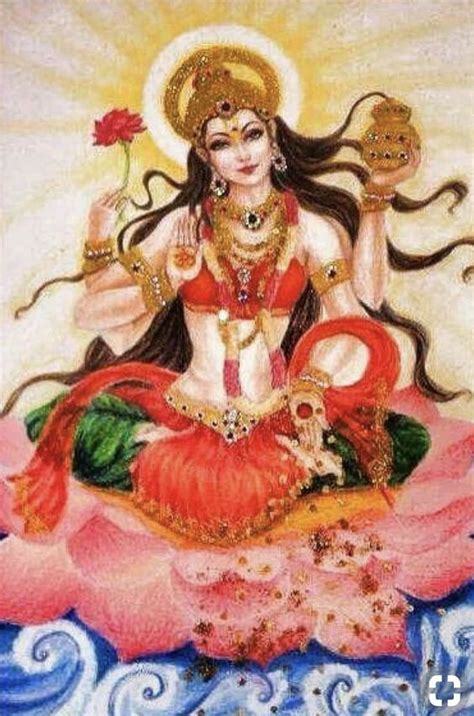
The deity assigned to Rohini is Prajapati- creator god. Rohini is the birth of the cosmic daugher and feminine at its most submissive. So submissive, that she does not question what influence is offered to her, she just absorbs it and gives it back.
Because Rohini is growth in all of its aspects, it's no wonder that the Hindu goddess of wealth is coorelated to it. Rohini is also closely connected to the Hindu culture overall. The overabundant use of bright, saturated colors and the frequent flower symbolism (flowers are connected to Rohini) is reminiscent of what people find beautiful as children, especially little girls.
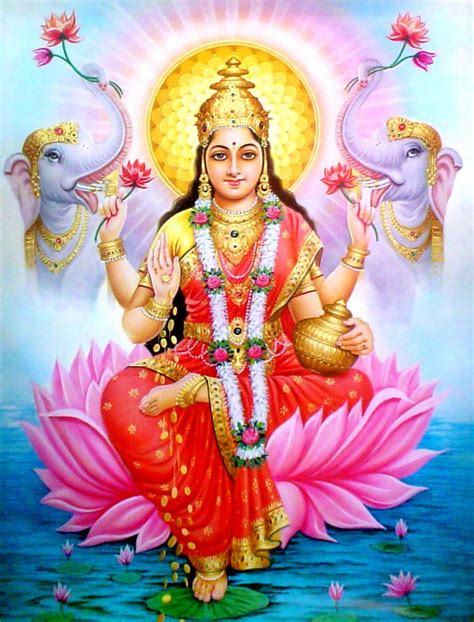
The overall analysis of Rohini is a completely different topic and claire nakti has done a stellar job at it. Hopefully this post made it clear why I think Lakshmi is the fit for Rohini. Also, do not think me lazy because I chose a Hindu goddess, it's literally the best one I could find, besides, Indian culture really suits Rohini.
Apologies to Rohini natives and everyone else, I couldn't find other deities that suited Rohini, besides Prajapati and Goddess Rohini herself, but I think that Lakshmi is pretty much on point. Let me know your thoughts, comment, reblog, like. Thanks for reading and take care 🤍
#rohini#rohini nakshatra#vedic astrology observations#vedic astrology#astrology#astrology observations#nakshatras#feminine#goddesses
160 notes
·
View notes
Note
do you know of any deities related to reproductive rights? i apologize if this is a silly question 😅
Hi, this isn't a silly question at all!
Unfortunately since women were not considered "people" in the ancient world (they were often seen as baby incubators with the sole purpose of having children which is why they were married off as soon as they got their periods and, unless they were from Sparta, without an education since education for young girls was seen as useless, unlike their brothers who would often receive an education, and sometimes if no other male relative was alive, their younger brother could be in charge of his older sister's life and marriage fate. Could you imagine having your annoying little brother in charge of your life? HELL NO!)
There are no Greek gods officially assigned to reproductive rights because reproductive rights were not a thing for women back then because they didn't have a say in their own life (there may be exceptions but those are super rare) but I believe that as time changes so do the gods which is why I believe any fertility god back then is also a god of reproductive rights, today:
You are free to look into the list of fertility deities in case you prefer someone else but I highly suggest Artemis for a number of reasons:

1) Artemis is one of the oldest fertility gods in the pantheon: She has an older Mycenaean version where she was already a fertility goddess since her older version, A-te-mi-to was a part of an ancient Arcadian tree cult in Greece that had orgies for reproductive purposes so she was firmly a fertility goddess but when they decided to change her from the non-virgin, non-twin Mycenaean version to her post Bronze Age collapse virgin, twin of Apollo version they re-invented her myth to include her helping her mother give birth to her brother Apollo, so she could keep her original title as a fertility goddess.
2) Artemis jealously guarded her own virginity throughout her myths: As the goddess who refuses to be the wife of any man or god she was openly hostile to anyone who challenged her virginity. In some versions, instead of Apollo tricking her into killing Orion who secretly was planning to rape her, she kills Orion herself as a show of self-defense. While bathing naked she turned a peeping Tom into a deer and had his own hunting dogs kill him. She's also aware of her virginity being a desirable target because she uses it to distract the two giants who had imprisoned Ares.
3) She's the unofficial god-mother of the Amazons and she's the head patron goddess of the strong women of Spartan: Her and Ares, the father of the Amazons, are really close so she is often with the Amazons herself. This is probably the closest to children Artemis will ever have since she has no children of her own. She is also the main patron goddess of Sparta (with her brother Apollo), and Spartan women were the exception, they didn't get married until 18, often with combat training and an education, and since they often inherited their dead husband's wealth and kept getting re-married, the two kings in Sparta would often petition the women in Sparta for money to fund whatever war Sparta was involved in since the women of Sparta were often richer than the sitting kings.
So for these reasons, I imagine Artemis would be a very strong candidate as a fertility rights goddess since she exercised her right to remain child free all throughout history.

33 notes
·
View notes
Text
Athena deeply... perplexes me lately.
I've already said my share on why I think she's deeply misunderstood within her gender-narrative but I'm thinking so much about her from the perspective of a trans man and it's extremely comforting to me. I did not expect that.
Athena, a Goddess first, of course. A lady Goddess, at that. Who never engages with the world through the prism of femininity: she chooses to lock herself in the state of parthenos never meant to produce an heir or marry, which are fundamental parts of the "becoming" of a woman (within ancient thought). A Goddess whose birth as a woman is pivotal as a factual happening but whose state of being a woman is stuck in the phase of a fact, nearly a plot device, but never an action.
Athena, a born-woman who doesn't function within femininity in the limits of her personal being and who actively assists in the making of the ultimate peak of a man: a hero. Athena who dwells within traditionally masculine areas: war, the battlefield, law. Athena who is ultimately a men's Goddess, whose patronage is a near-definition of gender affirmation because she is a patron of heroes.
Athena who is directly androgynous within Orphic hymns and indirectly distanced from acting within her birth gender inside of her epic narrative. Never a mother (I am not counting the whole mess with Erichthonius because he's not, technically, from within her, etc.), never a bride, never a wife: a Goddess with a woman's birth-assigned identity (as much as I can describe a Deity through human-like terms) who chooses not to perform as a woman within the world that has very strict definitions of gender.
To make it clear, I am not saying that the Goddess Athena - within her culture, myth, and votive structures - is an analogy to a modern-day trans person. I am merely looking at her - the complex concept of her - through the lens of a modern idea of gender... and I'm thoroughly mesmerized. She, very suddenly, brings me an incredible amount of comfort. Not in the "I want to be you" way, but in the "the very idea of you is soothing to me in a way I cannot comprehend fully".
24 notes
·
View notes
Text
revivalist approach to Artemis
disclaimer: this is intended to be a revivalist take on Artemis and some of her domains. i am only suggesting some ideas that you can freely discard if you do not find value in them. yes, these further interpretations may not be based on historical sources - that, in my opinion, is the point of revivalism. a lot of this is UPG.
while doing some research into Artemis, i started thinking about how certain deities' domains could be brought into our current world and modernised. our understandings of many things have changed over the millennia and as pagans in the 21st century, it may be a good idea to rethink some ideas to make them more relevant to today. that is not to say there isn't wisdom or value in the ancient interpretations, but i find it more difficult to connect to a deity that traditionally presides over something that is completely unfamiliar to me. so, this post is just me thinking aloud (in writing?) about some of these things specifically in relation to Artemis.
*note: this research was originally done as i was looking into the Roman goddess Diana. since the sources were focused on Artemis, i will refer to her in this post, however, some of these could also be applicable to Diana, depending on your personal interpretation and/or level of syncretism.
virginity
as i personally believe that virginity is a patriarchal invention meant to oppress us all, i do not want to necessarily associate the goddess with it nowadays and want to offer an alternate interpretation. in greek myth, Artemis can also/instead be interpreted as presiding over those who had not had and/or do not want to have sex. she is sometimes described as being "immune" from love and lust, leading to my further interpretation of her as a patron of asexual and aromantic people. furthermore, Artemis is depicted as protecting people from sexual assault and punishing those who commit those acts. this is another role that we could assign to her, as shielding from that kind of unwanted attention and harm and punishing those who carry them out.
the hunt
there is much less need for hunt in modern society. in europe, where i live and am from, hunt is more associated with the rich and the elites using it as a means of entertainment, which can also threaten the local wildlife. for this reason the hunt may not be a domain that is as important to us now and could even have negative connotations. in a more modern spin, i would like to propose then Artemis as presiding over wildlife conservation, which is also supported in ancient sources (where she would make sure that the wildlife could reproduce and continue to exist). you may still find value in associating Artemis with the hunt if it is relatable to your life or if another relevant situation arises, for example, if you are eating meat that comes from a wild animal.
archery
archery has become an obsolete means of hunting nowadays. however, it still exists as a sport alongside other methods of shooting. so while it may be less relevant now, i think this aspect, while transformed, could still be applicable.
giving birth and motherhood
this one could still be applicable to many today, so i only wish to expand it with my interpretation. this domain should not be exclusive to cisgender women and i think it could include trans people as well (if they are comfortable with that). that, of course, depends on personal comfort and interpretation but i suggest you think about it if you are interested.
young women/girls
as with the previous domain, i want to expand on this one. here as "young women/girls" we could think about any kind of person, beyond cisgender women/girls that is comfortable with that label. for example, as a transmasculine person, i see myself having been perceived as a girl once and thus this label could have applied to my younger self and their experiences. this may also be more important in relation to transfeminine people who may not have had the opportunity to present feminine when they were young/a child.
i was reading Artemis: Virgin Goddess of the Sun & Moon by Sorita D'Este while writing this post so credit to it for most of the research and inspiration
#artemis#helpol#hellenic paganism#artemis deity#revivalism#hellenic pagan#hellenic polytheism#hellenic deities#hellenism#diana deity#diana#mint in the moonlight
21 notes
·
View notes
Text
An Introduction to Arthurian Paganism
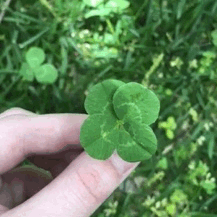
Hey, everyone! I’m back with another practice-related post. This time, we’re talking about Arthurian Paganism.
It should be noted that I am still researching and learning about the Arthurian Canon, and Tumblr’s #Arthuriana tag has been, unironically, extremely helpful. They have massive blog posts with links to copies of books that have been published and translated, abridged or unabridged, compilations and separate short stories, etc. which are becoming quite useful to me in my research. And for that, to the people who post and follow the Arthuriana tags, I say thank you. Your work—be it memes, academic compilations of sources, or artwork—has made this not only easier, but very fun.
With that out of the way, let’s talk about the Arthurian Pantheon, starting with what it exactly is at this point in my research and spirituality.
What is Arthurian Paganism and How did I get here?
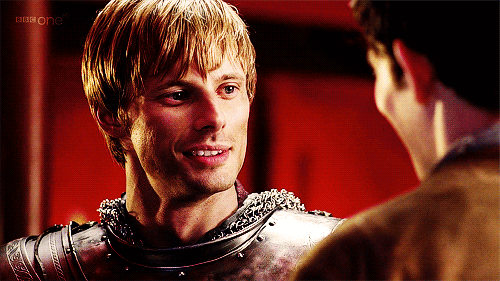
The what and the how are where I want to start. Simply put, I think this is the easiest thing to understand before we go down the rabbit hole of me assigning correspondences, working with festivals, etc.
Plus, anyone, especially in the Western World, has some vague understanding of what the King Arthur story is about. This gives us some equal playing field for a good understanding of the jumping off point of my spiritual path with the Arthurian Pantheon.
So to begin, the Arthurian Pantheon is the characters of King Arthur Stories being honored as deities.
I stumbled across this accidentally when I was trying to worship the Lord and Lady of the Land. A lot of how envisioned these deities came across as King Arthur and Lady Morgan Le Fay—and I was quite intrigued and confused. I had done some honoring of Morgan Le Fay in the past, but not much, and yet could not shake the feeling that there was something here for me to explore.
And as a child, I was always in love with the King Arthur stories and retellings I came across.
It took me a few months to fully embrace, but, by the time Lunasdagh arrived, I began considering in earnest how to honor King Arthur and Lady Morgan within their respective mythos.
King Arthur Pendragon is a mythic King of Britain. While there’s no real historical evidence that states he was a real person, to my knowledge at time of writing, we can trace his story specifically back to Wales as a folk hero in the Mabinogion. Here Arthur is usually portrayed as a vaguely supernatural entity who helps other travelers on their quests.
One such notable one is of Arthur helping his cousin win the hand of a giantess in marriage, if I remember correctly.
His time as a Welsh folk hero is discussed, briefly, in the Mythillogical podcast’s episode on YouTube. The link can be found here.
This version of Arthur is quite different from what he will become, as he is a wanderer and has a lot more agency in these tales. King Arthur tends to lose a bit of focus and agency over the overarching story of Camelot as the Canon grows both in characters and gets codified over time.
This loss of agency or lack of focus, whichever you prefer to call it, reminds me quite a bit of the human life cycle. Arthur, as people add on to his legends starting with Geoffrey of Monmouth and his Welsh Counterparts going all the way up to the modern day, goes through the cycle of birth, childhood, young adulthood, adulthood, elder, death, and finally rebirth. He represents a very human experience—from making mistakes (sleeping with his sister Morgause and in a fit of regret and anger at what he did goes to try and drown every child born on May Day in order to not eventually die at the child’s hand) to just trying to be a genuinely good man and king (his attempts at trying to persuade his Knights and Lords to have Mercy on Queen Guinevere when she was falsely accused of murder and rightfully accused of adultery).
King Arthur is very human and that is necessary for a chief god of a pantheon that I believe in, because I could never get behind a perfect god or a supposed son of god who is meant to share a human experience to understand us better but yet simultaneously is meant to be perfect.
So King Arthur became a comfort as a chief god, even if I haven’t really worked with him yet.
I do say good morning to him every morning though, because I associate King Arthur with the sun.
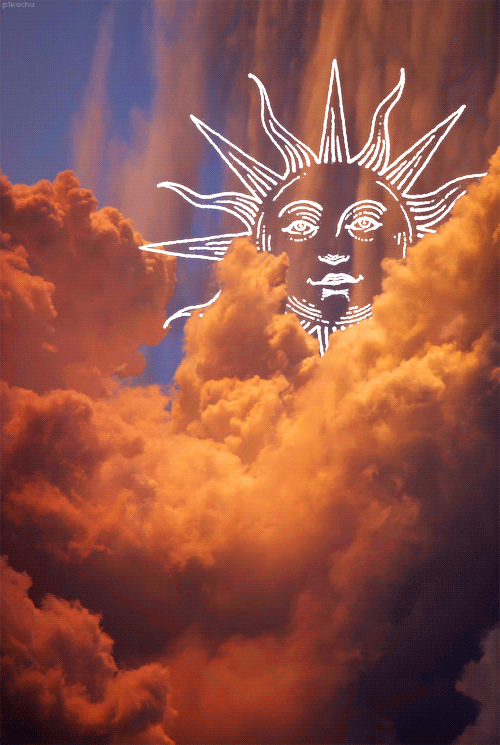
I mainly got here through Lady Morgan Le Fay, though. She reached out to me about a year ago through a vision I had while working at my part time job. I saw myself following her through mists in an indigo cloak with silver embroidery. So I began to honor her the best I could—I even picked up the Mists of Avalon, and read it for a while, to get her perspective on Arthurian Canon. Then, as the stress of finding a full time job and then having two jobs all began to bubble up, I fell off.
(Which I will get back to the novel eventually. I’m going to be reading a lot of Arthurian books and romances for the foreseeable future.)
Recently, through the attempt at honoring the Lord and Lady of the Land, I found my way back to Lady Morgan. When I reach out to a goddess in divination, I ask for her. When I do my kitchen witchcraft, I do it in her name. When I think of making something for my craft, I think of making it for her.
I wanted to do this seriously and the best I can.
Doing so led to me realizing that it’s not just King Arthur and Lady Morgan who gained spiritual/magickal/etc. independent being status through the centuries of rewriting, retelling, and rediscovering the Arthurian tradition again and again. They all were alive in their own way. Entities in their own rights with their own domains and their own things to teach us, the characters of King Arthur’s stories are alive.
And I had that realization relatively recently. Just a bit before my “Sir Gawain Type of Day” post.
So that’s how I got here.
Now let’s talk about my recent experiences.
My Experiences with the Pantheon:

This section will be quite short as my experiences aren’t much in the grand scheme of things—and a few are a bit personal. The findings are rather few as of right now, but I am starting out and the Arthurian Pantheon as a whole requested that I focus on the research aspect first as a way to honor them before I do anything big like celebrate Sabbats and stuff.
Lady Morgan also reiterated this fact with me last week, and reminded me that I do need to practice patience with myself.
And I’m trying, promise.
For my experiences with the pantheon, I’ve mainly interacted with Lady Morgan. She helped me pass my excel certification exam which allowed me to get my current full time position, and I asked that of her because I thought I’d be quitting my part time job once I got a full time position. I would have more time for the craft, which I promised her that I would make. However, the current state of the economy, and the cost of living where I live specifically, required me to work both jobs in order to pay bills and save up for an apartment.
So, I never really kept up my end of the deal—despite trying to for a while.
Lady Morgan’s energy never seems to give much away about her emotions. I’ve only ever felt an ancient patience and kindness with her. Much like a dusty old library on a misty spring morning, Lady Morgan’s energy is that of learning the art of patience and being okay with waiting—leading you down the path at your own pace.
Her energy also is heavily linked to the moon, mists, and rainstorms from what I’ve found.
The moon is something that she always radiated to me. Lady Morgan guides the way through the night, providing light and guidance through moonlight and stars. The moon tends to show its phase in a very different way if I’ve just been speaking to Lady Morgan earlier that evening and the stars seem much brighter despite the light pollution.
In my limited dealings with Lady Morgan, I’ve also found that, if I did something she was particularly proud of, a morning mist greeted me the next day. I feel the most comfortable in the mists, especially in the morning, so I always appreciate that little treat.

Lord, or more accurately, King Arthur has a different energy that I am sometimes able to connect to in the mornings.
King Arthur’s energy to me is very much the sun. It’s bright and welcoming and even protective to an extent. He’s constant, strong, and reliable. I also associate him with stags, not only because of the whole White Stag search that may or may not have ruined his wedding to Queen Guinevere (depending on the version you’re reading), but also because deer are quite common where I live. Does are definitely more common than stags, yes, but the few times I see a Stag I just immediately think it’s King Arthur.
I think this association began with the Mists of Avalon. Especially when there’s a whole trial by deer that Arthur needs to go through in order to be accepted by the Tribes and it results in his son with Morgaine, Mordred.
Beyond that association, stags tend to be connected to nobility and dependability in our modern media symbolism shorthand, with the most prominent example coming to mind being Elijah Mikaelson from the Vampire Diaries extended universe. Elijah’s nicknamed the Noble Stag for being a Mikaelson the people can trust to keep his word to the letter. He usually acts as the consciousness of his brother, Klaus, and tries to put family above all else.
In my mind, King Arthur is much the same. His energy is that of a stag—a man who keeps his word, puts the people he loves before himself, and is a just king.
And, finally, I felt Sir Gawain’s energy once. I wrote a blog about it, just a small musing really. But to me Gawain’s energy is that of liminal tidings. His energy is soft and comforting as the wheel of the year turns and we shift from one season to the next. At Yuletide/Winter Solstice, he deals the blow to the Green Knight—which rings in the warmer half of the year. And at Litha/Summer Solstice, he faces the Green Knight once more to bring in the colder half of the year.
Possibly.
I think this may change as Sir Gawain is definitely a god of the seasons and their shifts, but I can’t tell if it’s Sir Gawain who rings in the different parts of the year, or if it’s King Arthur, or someone else I have yet to interact with, or no one in the pantheon at all.
But, for now, I will say it’s Sir Gawain and the Green Knight that ring in the colder and warmer halves of the year.
But that is the extent of my experiences with the Arthurian Pantheon thus far. I am reading up on them still, as a part of my research and way to honor them.
My Recent Findings on the Pantheon:

Through my research, as I currently read “Sir Gawain and the Green Knight” as translated by Jessie Weston, I have found that King Arthur likes to hear stories of great feats from his knights and/or songs, or see a good game before he eats a feast, so that will be implemented during times I offer some food up to him. He also refuses to eat until everyone at court is sitting and served when hosting a grand feast, so if I invite people over I will try and do the same. King Arthur and The Knights of the Round Table love to have feasts with dried meats and honey wine ( AKA mead ).
When I get my apartment, I will practice making honey wine for libations to the King and his Knights.
My time browsing the Arthuriana tag on Tumblr, and the abridged version of Le Morte d'Arthur read by Derek Jacobi, indicated that Sir Gawain loves apples. So when I honor Sir Gawain specifically, I’ll see if I can make apples ready for the occasion.
The abridged version of Le Morte d’Arthur previously mentioned also pointed two days that I specifically took note of: Arthur’s birthday, being around December 24th, and Arthur’s king making which was on Candlemas, February 2nd. So I will definitely be celebrating Candlemas, and King Arthur’s birthday, which falls during Yuletide.
The Mists of Avalon audiobook that I’m listening to on Spotify indicates that Lady Morgan is knowledgeable in herb lore and is gifted with the Sight. So any form of herbalism and divination could be considered devotional acts to Lady Morgan. Or working with the Fair Folk, as in that telling of Arthurian canon has Lady Morgan descended from the Fae Folk of the British Isles.
And that’s all I have at the moment research wise. I haven’t had time to sit down and finish “Sir Gawain and the Green Knight” in order to move on to the next pieces of Arthuriana on the docket.
Conclusion:

As you can see, I don’t have much in the way of research or experiences yet. Really, this Introduction to the Arthurian Pantheon is just me trying to get my thoughts and early findings down on paper so I can continue forward.
I really can’t wait to learn about and from this very large and very diverse pantheon.
I’m not even sure if I’ll get to everyone—or if this counts as Celtic or Pop Culture paganism! I tag it as Celtic since these stories tend to be leaning more Celtic in nature and its birth in the British Isles.
But I hope you guys enjoyed this introduction into the pantheon and my experiences with it! I’ll make a more comprehensive and scholarly introduction when I have more time, knowledge, and experience under my belt with the pantheon if necessary. For now though, this is where I end the introduction post.
Until next time!
#arthurian paganism#deity#arthuriana#witchy tumblr#celtic paganism#chaos witch#deity worship#introduction#introduction to pantheon post#pop culture paganism#not sure if it counts as pop culture paganism or Celtic paganism#so I tagged them both#my bad guys#it’s super long#sorry#this post is 2425 words long
19 notes
·
View notes
Text
Mesopotamian Pantheon Explained
Hello! My name is Red, I am a devotee of the Mesopotamian Goddess Inanna, and it makes me sad to see that not a lot of people know about her, let alone the rest of her pantheon, so I thought I'd make a post about everyone, or at least, everyone I can. I've made a masterpost about her, and I really enjoyed it, as it gave me an "excuse" to learn about her, and this is the same. In this post I will be naming the gods and their domains and their relations with each other. If prompted, I would love to do a deep dive on every deity in this pantheon I can. Unfortunately, there are over a thousand deities across all Mesopotamian cultures, so this is by no means a complete list or anything similar.
So, first, what is Mesopotamia? Mesopotamia means "land between the rivers", the Tigris and Euphrates Rivers, and it is the term to define the whole region and the various cultures that lived there. This includes Sumer, Akkadia, and Babylon. Despite culture being different, they shared similarities in written language, religion, and attitude towards women. The gods may have had different names at different points, but they were the same deity to all, often referred to interchangeably. This region gave birth to about 50 firsts of man.
But, on to the Gods!
The first thing to know about the Pantheon and how people worked with them, is that mortals believed them to be coworkers with the deities, and that they worked together to maintain order. Due to differences in cultures, each civilization viewed the deities differently, so Marduk might have been king of the Gods in Babylon, Enlil was king of the Gods in Sumer. The heavenly Gods were referred to as Igigi, and occasionally Anunnaki, though in some sources Anunnaki was the older or "major" Gods, and the Igigi were the lower ranking Gods.
We are going to start with the Seven Divine Powers, the oldest Sumerian deities.
Anu - sky god
Enki - god of wisdom
Enlil - lord of the air, sumerian king of the Gods.
Inanna - goddess of love, fertility, and war, queen of the heavens
Nanna - goddess of the moon
Ninhursag - mother goddess
Utu/Shamash - god of the sun
Other popular deities include
Assur/Ashur - supreme god of the Assyrians
Ereshkigal - goddess of the underworld
Gula - goddess of health and healing
Marduk - babylonian king of the gods
Nabu - god of writing
Nanshe - goddess of social justice
Nergal - god of war
Ninkasi - goddess of beer and brewing
Nisaba - goddess of agriculture, turned to writing and accounts
Dumuzid/Tammuz - god of shepherds
Enkimdu - god of farmers, seen as the personification of the irrigation system
Geshtinanna - goddess of scribal arts and dream interpretation (theorized)
Bau - mother goddess, healing
Ishkur - god of storms and rain
Ištaran - god of divine justice
Nanaya - goddess of love
Nanshe - goddess of divination
Ninazu - associated with the underworld, though his role is disputed
Ninlil - wife of Enlil, thought to be "artificially created" as Enlil's equal
Ninshubur - god(dess) attendant of Inanna (in some sources she is masculine, and others feminine)
Zababa - war god
Alammush - god attendant of Nanna
Sherida - goddess of dawn
Apsu - primeval freshwater
Tiamat - primeval sea
Creation-
The Mesopotamians had many different tellings of the creation of the world, most likely due to the cultural differences. Atra-Hasis, Eridu Genesis, and Enuma Elish are the most common, as we have physical copies of them today. They, among other sources, depict a different family tree, but with key similarities.
Atra-Hasis: Anu, Enlil, and Enki cast lots to determine who rules what. Anu the sky, Enlil the earth, and Enki the sea. Enlil assigned minor gods to farm, but after many years the minor divines refused. Enki suggested to make humans to do the labor. Mother goddess Mami fashions humans out of clay, flesh, and blood of a slain god, and all the gods spit on the clay. After ten months, humans emerged from a specifically made womb. After many years, humans have overpopulated, so Enlil sends famine and drought every 1200 years. Enlil decides to destroy humanity by flood. Enki goes to hero Atra-Hasis and tells him of the plan, instructing him to demolish his house and build a boat. He does, and he brings his family and his animals and seals the door. When the flood comes it stays for seven days and even the gods are afraid. It ends and Enlil is furious with Enki for breaking the vow of silence but eventually the two agree to find other means of controlling the human population.
Eridu Genesis: the beginning of this has been lost to time. The surviving portion starts with Nintur, the goddess who birthed humanity, where she calls for them to he sedentary and civilized. Then more is missing. It resumes with humanity still being nomadic and barbaric. Nintur is stilling planning to provide kingship to the mortals. Then cities emerge, are named, and become distributional economies. Humans begin to annoy the gods, Enlil was unable to sleep, and made the brash decision to destroy humanity with a flood. Enki tells Ziusudra, a human, and tells him to build a boat to save himself and one couple of every animal. Ziusudra does as he is told and the flood comes. Humanity survives, but the rest is lost to time.
Enuma Elish: at the beginning, Apsu and Tiamet existed, co-mingled. From them came Lahmu and Lahamu. Then Anshar and Kishar, and from Anshar came the god Anu and from Anu came Nudimmumd/Ea. These new gods made noise that annoyed Apsu, who called to Mummu to speak with Tiamat, who proposed to destroy them, but Tiamat was reluctant. Mummu advised Apsu to destroy them. The new gods were worried, but Ea crafted a spell to lull Apsu to sleep. Mummu couldn't wake him. Ea took the halo from Apsu and wore it, slew Apsu and chained Mummu, living in Apsu with his wife, Damkina. Together, in Apsu, they created Marduk. Other gods made fun of Tiamat for not doing anything as Apsu was killed. Tiamat made monsters to fight the gods, eleven chimeric monsters with weapons, lead by her new consort Kingu, and gave him the tablets of destinies. Ea heard of the plan and went to his grandfather Anshar, who proposed Marduk as their champion. Marduk said he would win against Tiamat but that he would need to be king of the Gods if he did so. The others were wary but eventually relented. Marduk was given a throne and many supplies to fight Tiamat. He won and split her body in two, fashioning the sky from one half, places for Anu, Enlil, and Ea in it. He made likenesses of the gods in the stars, and from that he made the days of the year. He made night and day and the moon, he made storms and wind and rain, and gave the tablet of destinies to Anu. Marduk told Ea that he was going to use his blood to create man to serve the Gods, but Ea said that another should be chosen as sacrifice. Kingu was chosen, so man was made using his blood.
So... where do these other gods fit into the family tree?
Great question.
An and Ki had Enlil and Enki.
Enlil and Ninlil had Nanna, Nergal, Ninazu, and Enbilulu.
Enlil and Ninhursag had Ninurta.
Nanna and Ningal (in some sources) had Ereshkigal, Inanna, and Utu. In other sources, Enlil, An, or Enki were their parents.
Ereshkigal and Anu had Nungal.
Ereshkigal and Gugalanna had Ninazu. In other sources, Enlil and Ninlil, or Nanna were his parents.
Utu and Aya had Mamu, Kittum, Ishum, and Sisig.
Enki and Duttur had Dumuzid and Geshtinanna.
Either Sin, Urash, or Anu, and Inanna, had Nanaya.
Dumuzid and Inanna were married, but bore no children together.
Thank you for reading this major info-dump and lmk if you guys want any specifics or deep dives on someone! <3
#witchblr#witchcraft#deity work#deity witchcraft#deity devotion#deity worship#mesopotamian mythology#mesopotamia#sumer#sumerian mythology#babylon#babylonian mythology#inanna#ereshkigal#utu shamash
27 notes
·
View notes
Text
Named Angels
Fallen angels are not included. Neither are gnostic angels because I'm tired.
Aker: Named in the Greek Apocalypse of Ezra as one of the nine angels who will govern at the end of the world.
Al-Khidr: Also known as al-Khadir, Khader, Khidr, Hidr, Khizr, Kathir, Khazer, Khadr, Khedher, Khizir, Khizar, or Khilr. The Servant of God whom Moses accompanies in the Quran is identified as Al-Khidr by Islamic scholars.
Ambriel: Ambriel is an angel associated with the month of May.
Arariel: Described in the Talmud as the angel in charge of the waters of the Earth.
Ariel: An angel in Jewish and Christian mysticism. Ariel has dominion over beasts, creative forces, the North, and elemental spirits.
Arphugitonos: Named in the Greek Apocalypse of Ezra as one of the nine angels who will govern at the end of the world.
Artiya'il: An angel appearing in the hadith. Artiya'il removes grief and anxiety from humans.
Atid: One of two angels in Islamic tradition who records a person's actions. This record is used to confront each person on the Day of Judgment.
Azrael: The angel of death. Azrael is one of the four archangels in Islam.
Beburos: Named in the Greek Apocalypse of Ezra as one of the nine angels who will govern at the end of the world.
Camael: Also known as Chamuel, Khamuel, Camiel, Cameel and Camniel. One of the twelve Kabbalah angels, Camael is assigned to the fifth sephirah in the tree of life.
Cassiel: Also known as Qafsiel or Qaspiel. In Jewish and Christian mysticism, Cassiel is described by various roles, such as the angel of Saturn the angel of the moon, the angel of tears, and the angel of temperance. Cassiel is sometimes said to preside over the death of young men.
Dobiel: Also known as Dubbiel. Dobiel is the guardian angel of Ancient Persia.
Gabriel: An angel who announces God's will to men. Gabriel is considered in archangel in Jewish, Christian, and Islamic traditions. Gabriel appears to Daniel to explain his prophetic visions. Gabriel foretold the birth of John the Baptist to Zechariah and the Annunciation of Jesus to Mary. Gabriel appeared twice to Muhammad. In the church of Jesus Christ of Latter Day Saints, Gabriel lived a mortal life as the prophet Noah. Gabriel was named in the Greek Apocalypse of Ezra as one of the nine angels who will govern at the end of the world.
Gabuthelon: Named in the Greek Apocalypse of Ezra as one of the nine angels who will govern at the end of the world.
Haniel: Also known as Hananel, Anael, Hanael or Aniel. Haniel is sometimes listed as one of the seven archangels. In Kabbalah, Haniel is associated with the seventh sephirah.
Jegudiel: Also known as Iehudiel. Jegudiel is one of the seven archangels of the Eastern Orthodox Church tradition. Jegudiel is the patron saint of hard work and leadership and is often depicted holding a whip (as a punishment for sinners) and a crown (as a gift for the righteous).
Jerahmeel: Also known as Jeremiel, Eremiel, or Ieremihel. Jerahmeel is recognized as an archangel in Lutheran, Angelican, and Orthodox traditions. Jerahmeel is said to comfort the righteous dead in the Bosom of Abraham, or to guard heaven with St. Peter.
Jophiel: Also known as Dina, Iophiel, Iofiel, Jofiel, Yofiel, Youfiel, Zophiel, or Zuriel. In Anglican tradition, Jophiel is an archangel and in Kabbalah, Jophiel is associated with the sephirah chokmah. Some sources list Jophiel as the angel who guards the garden of Eden with a flaming sword.
Kalqa'il: Kalqa'il is an Islamic angel who guards the entrance of the fifth heaven.
Lailah: An angel appearing in the Talmud. Lailah is associated with conception, pregnancy, and the night.
Maalik: An Islamic angel of hell. Maalik carries out God's punishment on wrongdoers.
Metatron: Described in the Talmud as the heavenly scribe, Metatron is allowed to sit in the presence of God to record the deeds of Israel. Metatron was mistaken by Elisha ben Abuyah for a deity, and was subsequently lashed 60 times with a fiery rod to demonstrate that the Metatron was an angel and could be punished, unlike a god. In mystic writings, Metatron is the form Enoch took after his ascension. In Islam, Metatron is the angel of the veil and alone knows what lies beyond it.
Michael: Also known as Mika'il or Mikal. The prince of Israel and prince of the Heavenly Host. Michael is regarded as an archangel in Jewish, Christian, and Islamic tradition, and is the only angel explicitly identified as an archangel in the Christian Bible. In the book of Daniel, Michael fought the prince of Persia. In Revelation, Michael fought Satan and cast him out of heaven. Michael and Gabriel are the angels said to have shown Muhammad paradise and hell. In Jewish tradition, Michael prevented the sacrifice of Isaac by providing a ram. Seventh Day Adventists and Jehovah's Witnesses believe Michael is another name for Jesus in heaven. In the Church of Jesus Christ of Latter Day saints, Michael is the same person as Adam. Michael is named in the Greek Apocalypse of Ezra as one of the nine angels who will govern at the end of the world.
Moroni: In angel in the Church of Jesus Christ of Latter Day Saints. Moroni was the guardian of the golden plates from which Joseph Smith wrote the Book of Mormon, and appeared to Smith numerous times.
Muriel: Muriel is a Domination, a class of angel in the second angelic sphere. Muriel is associated with the month of June.
Nuriel: Regarded in some traditions as the same being as the angel Uriel. Nuriel is the angel of hailstorms and commands an army of 500,000 angels made of water and fire.
Pahaliah: Pahaliah is the angel of Redemption. Pahaliah is a throne, an class of angel in the first angelic sphere.
Puriel: Puriel accompanied Abraham on a journey to heaven. Puriel is tasked with examining the souls of those brought to heaven.
Raphael: Known in Islam as Israfel or Israfil. Raphael is regarded as an archangel in Jewish, Christian, and Islamic traditions. It is believed that Raphael is the angel in the Gospel of John who stirs the pool of Bethesda. In Islam, Raphael will blow the trumpet which signals the Day of Judgment, and the hadith lists him as the angel closest to God. Named in the Greek Apocalypse of Ezra as one of the nine angels who will govern at the end of the world.
Raqib: One of two angels in Islamic tradition who records a person's actions. This record is used to confront each person on the Day of Judgment.
Raziel: Also known as Gallitsur. Raziel is the angel of secrets and mysteries, and the keeper of all magic. In Kabbalah, Raziel is associated with the sepirah chokmak.
Riḍwan: Also known as Riswan. Riḍwan is an Islamic angel who guards the gates of heaven.
Sabrael: Sabrael is an angel appearing in the apocryphal works the Testament of Solomon and 3 Enoch.
Sachiel: Also known as Sariel, Suriel, Suriyel, Sikhael, Sixael, Satquel, Satquiel, Saquiel, Seriel, Sauriel, Saraqael, Sarakiel, Suruel, Surufel, Souriel, or Sachquiel. Sachiel is a cherub who is associated with charity and wealth.
Sahaquiel: Listed as one of the archangels in the Third Book of Enoch. Sahaquiel is attended by "496,000 myriads of ministering angels."
Samkhiel: An angel of Gehenna, Samkhiel is the angel of destruction. Samkhiel torments the wicked to cleanse their souls and eventually reuinte them with God.
Sandalphon: An archangel in mystical traditions of Judaism and early Christianity. Sandalphon is said to gather prayers and bring them to God. Some sources regard Sandalphon as an angelic ascension of Elijah.
Sarathiel: Also known as Serathiel. Sarathiel is an archangel in the Oriental Orthodox tradition.
Selaphiel: Also known as Sealtiel, Selatiel, or Selathiel. Selaphiel is regarded as an archangel in the Byzantine Catholic and Greek Orthodox traditions. Selaphiel is sometimes viewed as the angel in Revelation who offers people's prayers to God.
Uriel: Also known as Phanuel. Uriel is often depicted as a cherub and is the angel of repentance. Uriel is regarded as an archangel in Russian Orthodox, Eastern Orthodox, Ethiopian Orthodox, and Anglican traditions, as well as in Kabbalhah. Named in the Greek Apocalypse of Ezra as one of the nine angels who will govern at the end of the world.
Uziel: Also known as Usiel. Uziel is an archangel in 3 Enoch.
Yahoel: Also known as Jahoel, Jehoel, or Yaoel. Yahoel is charged with destroying idolators and restraining the Leviathian. Some sources list Yahoel as the chief angel of the Seraphim. Another lists Yahoel as one of the names of Metatron.
Zadkiel: Also known as Hasdiel. In Kabbalah, Zadkiel is an archangel associated with the fourth sephirah.
Zaphkiel: Also known as Tzaphqiel, Tzaphkiel, Zaphchial, Zaphiel, or Zelel. Zaphkiel is the chief angel of the thrones and is regarded in some traditions as the same angel as Raphael.
Zebuleon: Named in the Greek Apocalypse of Ezra as one of the nine angels who will govern at the end of the world.
Zephaniel: Zephaniel is the chief angel of the Ishim in Kabbalah.
Zerachiel: Also known as Zachariel, Zakhariel or Saraqael. An angel who leads souls to judgment and is set over those who "sin in the spirit."
Zotiel: Zotiel is an angel mentioned in the Book of Enoch.
188 notes
·
View notes
Text
Chapter 13: Inner Demons
prof!Steven Grant-Jake Lockley-Marc Spector X f!Reader

Edited by: @whatthefishh - Special thank you to @moonknightly for assisting with some technicalities in this chapter.
Mood Boards - Book Cover - Masterlist
Chapter Summary
Steven learns some devastating news. You feel more confused than ever.
Tags/Summary (these are for the ENTIRE fic):
college AU, no powers/not in MCU/no Khonshu (as a deity), talk of mental illness, Marc has DID, forbidden relationship, age gap, reader is 21y/o, Boys are 38y/o, reader attends college in America but isn't necessarily American, smut, sex, masturbation, p in v, creampies galore, reader is on birth control, dubious consent due to identity issues, ANGST, romance, fluff and smut, oral sex, falling in love, reader is not race coded, minor mentions of alcohol addiction and depression.
Word Count: 2.9k
----
When Steven woke up on the Monday following his birthday, he didn’t think that his entire world would blow up the way it did, more than it already had before that day. He thought that he’d already experienced the worst day of his life on the day a rift was torn between the two of you. He was wrong.
He still avoided Moonbean Coffee like the building alone would put him in a straight jacket. He still had to walk by it on the way to his classroom though. Every time he passed by it there was an unrivaled pain in his gut that he couldn’t easily shake. He looked at his reflection in the window. The way the panes sat gave Steven the perfect view at both Marc and Jake. He scowled at them and continued his walk.
He hated seeing you. He hated sitting at his desk, watching you walk through the door in your pretty clothes and perfect face. He hated that he couldn’t look forward to seeing you in his office later just so he could kiss you, and be close to you. He still dreamt about you all the time. He especially loved the dream he had on the night of his birthday, where he had you outside on the hood of his…well he could tell it wasn’t his…but a car. Your eyes were so full of love when you looked at him in his dreams. Sometimes he wished he could live in there.
Now your eyes were staring at your laptop screen. He could tell that you were trying so hard to keep them there, trying so hard not to meet his gaze. You finally did look at him though, when he reminded everyone of the next big assignment due…midterms. You’d forgotten, he could see it plain as day on your face. It was like you were begging him silently to take it back. Given everything he’d put you through, it was no wonder you weren’t prepared. He failed you as a man, and as a professor.
You remembered the substitute professor mentioning the midterm assignment once…was it twice? You sighed in a frustrated huff. The sub could’ve mentioned it a hundred times and you would’ve forgotten. Your mind wasn’t on school in the slightest. You’d been so wrapped up in Steven, the late night rendezvous, and his return to school, that you’d completely let the essay due on the renaissance slip your mind.
It was straight to the library for you once class was over. No way in hell were you going to be able to focus in your dorm room, nor were you going to have the resources you would need in order to get your research done. You didn’t even have a topic picked out yet. You couldn’t fail this class, not after you’d told your parents that you would get tutoring and do well in history this year.
You sat down in the back corner of the library, as you often did, pulling out your laptop before resting your face in your hands. You felt drained; emotionally, mentally, even intellectually. Spring break was right around the corner, but it couldn’t come soon enough. You needed the mental reset to get yourself back on track. You needed to move on from him somehow. You knew that much was true, you’d known it for a while.
It helped that he’d been more distant over the last few weeks. You felt like you could break things off easier now, and it might not hurt as much as the initial blow when he broke it off in his office. That didn’t mean that it was going to be easy…it just meant that you were finally ready to move on. At least, that’s how you felt at that moment.
You let out a heavy sigh. This was it. You were too smart for all of this nonsense. You and your parents were putting too much into your schooling for you to let it all fall apart over…whatever was still going on between you and Steven. It was time for you to actually move on. It was time for you to let go, despite still feeling some love for him, and despite the fact that he had taken so much from you and hurt you the way he did.
It was that simple. You would just let things go back to normal. The next time he texted you to meet outside, you would ignore it. You were happy with your decision, but when you lowered your hands from your face, he was standing there, looking nervous with his hands clenched into balls in front of him. You wondered if he knew that he did things like that, and you wondered if he knew how effortlessly cute it was. You just wanted to kiss that wrinkled spot between his upturned brow. So much for letting him go.
“Hey…hi erm…” He rubbed the back of his neck nervously.
He was feeling a little bit of regret wash over him after approaching you. He shouldn’t have done that. Both Jake and Marc were practically screaming at him to stop, both for different reasons, but telling him to stay away from you all the same. He was shoving them back again, his desire to comfort you and help you outweighting their shouting in his mind. Steven was a little surprised by your expression though. You didn’t look angry, or even sad as he thought you might. You looked…confused.
“What the hell are you doing?” You asked in a harsh whisper, trying to make sure that no one in the library would hear you speaking to him.
He looked surprised at your response, furrowing his brow and stuffing one of his hands in his pocket. His jaw dropped, and he started stammering to find the words to say. He looked around, making sure no one was there before he continued.
“I-I…well…I could see that you were a-a little taken aback when I reminded everyone of the paper so I thought…if we are in a public setting I wouldn’t mind still tutoring you if you really need–”
“Steven, what the fuck are you talking about?” You looked around the library, panicked.
You thought back to the texts he’d sent you just over a week ago:
Steven: Hey love, I’m coming back to school tomorrow. I think it’s time. Make sure not to speak to me or even come near me, alright?
Steven: Can’t even have you asking for help with class. Just pretend you don’t know me at all if you want this to continue.
“You’re still my student, I still have a responsibility to help you. If we’re in a public place it will force us to keep our hands to ourselves. If you even still like me that way. I’m not saying you do, I’m not sayin’ that. Probably should’ve tutored you in public in first place now that I’m thinkin’–”
“You told me to pretend I didn’t know you, first of all and second, why would you think I don’t like you when…” you looked around and lowered your voice further, “when we were just with each other last night?”
He sniffed out a laugh, narrowing his eyes in confusion. You saw his brow furrow as if he had no idea what you were talking about. He shook his head like he was trying to understand what you were saying, as though you were speaking a language foreign to him. Then you saw the complete shift in his expression, as though a huge realization hit him. He stepped back, covering his mouth in his hand.
What the fuck. What the fuck. What the fuck. What the–
“I’ve gotta go,” he said suddenly, leaving the library quickly, leaving you more confused than you’d ever felt.
“Steven…what the hell was she talking about…‘with each other last night’?” Marc asked, voice full of anger.
Steven didn’t answer. He was shaking, trying hard to keep from falling over on his wobbling legs. He’d never felt like this before, such anger, dread, and panic rushing through his veins like a doctor had given him an emotional cocktail in a syringe. Adrenaline forced his hands to tremble, he noticed it when he opened the door to the outside.
Nothing good could come from him screaming at the other two while he stormed out of the building. He didn’t want to draw too much attention to himself, despite the panic building inside his chest. How he made it to his flat in one piece was beyond his understanding. He was still shaking uncontrollably when he tried to get the key in the door handle. He dropped them loudly in the hall. He thought he heard one of his kind neighbors ask if he was alright as they exited their own flat, but his hearing was like white noise.
The moment he stepped inside, he slammed the door behind himself and he dropped to the floor. He buried his face in his hands, and let the pain surge through him. This couldn’t be. This couldn’t be true. How could this happen? Steven had never hated himself, and the men inside his head so much. He yelled out, slapping his hand on the floor.
“Steven! Have you been seeing her behind our BACK?!” Marc yelled, forcing his way to the front in place of Steven. He stood up, walking over to the three-way mirror to face his alters. “Answer me!”
Steven looked at Marc with the utmost disdain Marc had ever seen his alter muster.
“Wasn’t me…”
A tear trickled down Steven’s cheek. Marc could feel the rage inside of him. This was unusual for Steven, even in his angriest moments. Steven thought back to last night. The ‘dreams’ he and Marc had been having; you bent over various parts of a car they didn’t recognize; the way you looked at them in their dreams, like something was off about the way they were talking to you, or the way they were acting.
“Jake.” Both Marc and Steven said, looking at Jake’s panel in the reflection.
Marc grabbed onto the mirror. It trembled under his grip. Jake didn’t let much bother him, or shake his usual calm demeanor, but the other two were glaring at him. It wasn’t uncommon for Marc to hold a look of aggravation, but Steven…Steven looking at him that way made him feel an insurmountable wave of guilt like never before.
“Are you guys going to let me explain or are you going to cut me off and yell at me the second I start talkin–”
“How dare you.” Steven said and Jake threw his arms up in frustration at the interruption. “You knew I was suffering, going through this…this…break up, and you kept seeing her? Behind my back?”
“Escucha hermano! Por favor,” Jake said, sensing that Steven was getting even more upset by the second, and rightfully so.
Steven was fronting again, and the tears started flowing freely. He felt distraught with the pain of betrayal reverberating through his bones. He had to think, to make sure he was understanding correctly what was happening. He stepped away from the mirror with his face buried in his hands.
You had been sleeping with Jake for who knows how long, while Steven took a back seat and Marc thought he had everything under control. The lying snake. Jake’s moral compass was always questionable, but this was low, even for him. At least he’d been considerate of the system in the past. Even his immorality had good intentions behind them. This was completely and utterly selfish.
“Does she know?” Steven dropped his hands and looked at his reflection…at Jake, “does she know that she was sleeping with someone else?!”
The silence was all the answer Steven needed. You’d been letting Jake have his way with you without realizing it was him this entire time. He was out of words to say. It was like his face was frozen, mouth slackjaw and eyes glistening with the realization of what this meant. You thought that Steven and you were still together, and Jake had been tricking you into sleeping with him. This was disgusting. This was bad…this was very bad.
“Jake, you of all people should understand what kind of trouble we could be in!” Marc yelled, “I mean come on! The poor girl already dealt with the heartbreak of losing Steven once, and now you’re going to–”
“We have to tell her, Marc.” Steven said, looking into his panel. “After what he put her through? She deserves the truth.”
“No, no we can’t tell her the truth,” Jake chimed in, “she will leave us for good.”
“Good!” Marc yelled, “that would be the best thing that could happen right now. I’m with Steven on this one.” Marc grumbled under his breath. “Poor girl, you’re sick Jake. The three of us are supposed to be keeping a low profile, and you might just manage to get us arrested, or at best put in an asylum.”
“Thank you Mar–”
“Why do you got such a stick up your ass over this huh? Nobody is worried about a small-time professor at a random college in the US. Khonshu and his men won’t find us, even if she and Steven got caught. You coulda just let them stay together! If you tell her the truth now we just might get caught, ever think of tha pendejo?”
“That’s not even the point anymore, you fucked her in the back seat of your fucking car and she deserves to know that!” Steven’s voice cracked while he yelled, swearing more than Marc had ever heard in all the years he’d had Steven around. “There’s no way in hell she’s staying with us after this, and I wouldn’t blame her! She shouldn’t stay with us! Congratulations to the both of you for, once again, managing to ruin my life!” Steven sighed, “I ruined her life. Never should’ve dragged her into this. We need to come clean, it’s the right thing to do.”
Steven charged over and grabbed his coat from the coat rack, but Jake stopped him, taking over the body.
“Not a chance hermano, I’m not letting you ruin this for us,” he stepped away from the coat rack, dropping Steven’s jacket on the floor.
Jake didn’t want to keep deceiving you, of course not. He wouldn’t consider himself a bad person, or someone that took pleasure in causing you emotional pain, but he couldn’t stop thinking about the way you looked at him. Your eyes always lit up a little when your gaze met his. It was like nothing else mattered, and he’d never felt that with anyone before. The thought of losing that feeling - of losing you - gave him a sense of desperation unlike any he’d ever felt. He considered that he might rather die than experience the agony of not having you in their life.
“So…what? Are you just going to keep doing this to her? What the hell is wrong with you?!” Steven protested.
Marc took over again, and he went to the couch and sat down, taking a deep breath. He buried his face in his hands, shaking his head and sighing deeply. This was such a fucking mess. They were always making such a fucking mess of everything. He and Jake had made Steven’s life hell, and in Marc’s attempt to make his life better, both Steven and Jake had fallen for someone they weren’t allowed to have. Marc once again felt an overwhelming sense of self loathing.
“Dumb…this is so…” Marc leaned back, staring at the ceiling and taking a moment to embrace the silence, “dumb.”
“We can’t tell her, she’ll hate us. I…I don’t want to let her go.”
There was a pull at Marc’s heartstrings from the one that he least expected to feel it from…Jake Lockley. He expected this from Steven, but never from Jake. Marc’s fist was clenched so hard that his knuckles ached. He ran a hand through his messy curls, courtesy of Steven, and then he let his hands drop to his sides.
“We can’t let her keep meeting with you and thinking it’s me, Jake. S’wrong and you know it. Oughta be ashamed. Disgusting.” Steven spat, seething with anger toward Jake.
Marc reached into Steven’s pants pocket and pulled out his phone. He opened up your contact and pressed the little green phone.
“Steven, gonna need you to–”
“Yeah, on it,” he said, coming to the front and waiting for you to pick up on the other end.
He could feel Jake trying to stop him, but to no avail. Steven knew what had to be done, and they were going to do it. There was no way around it anymore. The three of them were a package deal, that much was evident, and it was time for them to tell you the truth. You picked up on the other line, and Steven’s breath caught in his throat.
“Steven? Why the hell are you calling me?” You must’ve still been in the library, based on your harsh whisper.
“Can you come to my flat, please? We need to talk.”
“What do you mean? I thought you said–”
“Now…”
----
Previous Chapter - Next Chapter
Moon Knight Masterlist
#steven grant#steven grant fiction#steven grant headcanon#steven grant fic#steven grant fanfiction#steven grant fluff#jake lockley#jake lockley x reader#jake lockley x you#jake lockley fiction#jake lockley headcanon#jake lockley fanfiction#marc spector fiction#marc spector headcanon#marc spector x reader#marc spector x you#marc spector#marc spector fanfiction#moon#knight#moon knight drabble#moon knight smut#moon knight fanfiction#moon knight fic#moon knight#jake lockley smut#steven grant smut#marc spector smut#prof!Steven Grant#college au
168 notes
·
View notes